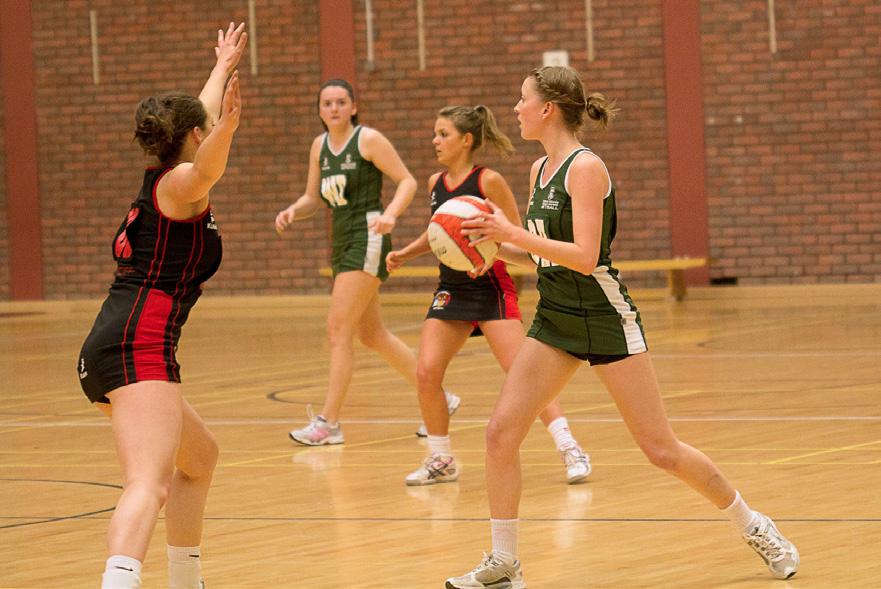gair rhydd

Meet your new elected team










The third and fourth floors of the Students’ Union have undergone vast redevelopment over the summer, ready for the arrival of students in September.
The investment, costing just over £1.4m, aims to provide the Union with an open plan, welcoming layout; a complete transformation from the previous structure, which has existed virtually unchanged since the Union building
was built nearly 40 years ago. It has been designed with more ‘interaction space’, intended to allow for greater ease and opportunity for interaction between staff, students and the elected officers.
Located in the centre of the third floor are the Elected officers’ desks, in the officer bowl - a name bourne from its circular glass walls. Although students have always been welcome and encouraged to come and speak with the officers, the move away from closed offices to this new structure aims to make that even easier.
In addition to the open plan layout, there are 14 new meeting rooms; four on the third floor and ten on the fouth. The University, who provided the majority of the funding for the project, has hired the use of eight of the fourth floor rooms during weekdays, but students, societies and sports teams will be able to book them for evenings and weekends.
While the redevelopment will be open and useable from the beginning of freshers’ week, there will be a formal opening ceremony that is anticipated to happen in October.
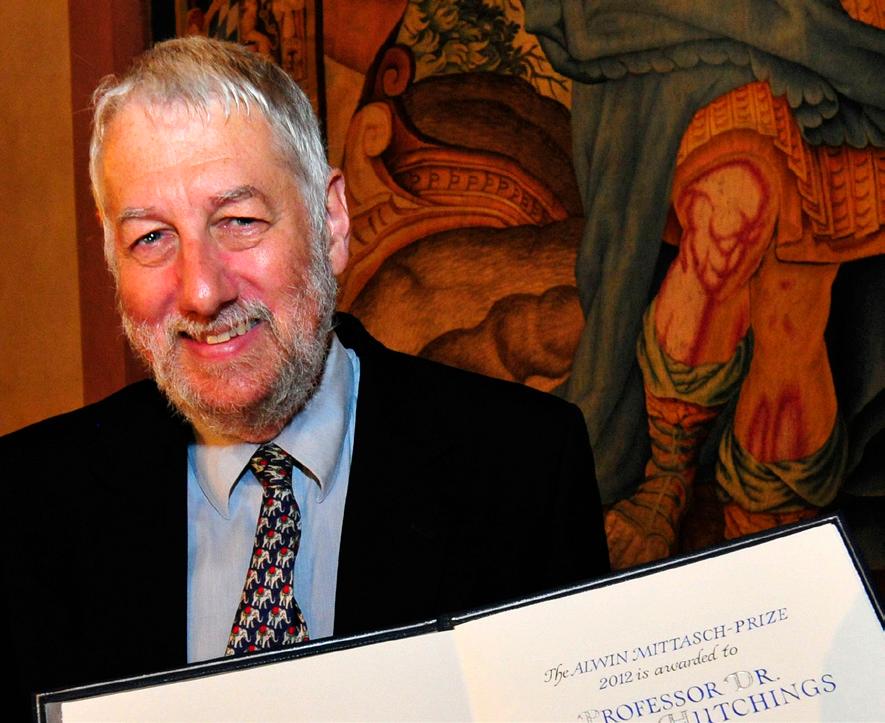
to British politics page 20


11 Attenborough to deliver Cardiff talk page 4

EDITOR
Tom Eden
CO-ORDINATOR
Elaine Morgan
SUB EDITOR
Jacob Dirnhuber
NEWS
Ashley Bebbington
Max Eshraghi
Georgia Hamer
Rowan Whittington
OPINION
Vicky Chandler
Gareth Evans
Beth Lyons
POLITICS
Matt Harding
SCIENCE
Scott Davies
David Mason
SOCIETIES
Grace Cole
TAF-OD
Anna George
Cerith Rhys Jones
SPORT
Ross Martinovic
Liam McNeilly
Arthur Russell
CONTRIBUTORS
Kayleigh Chan
Jess McFarlane
Sam Parsons
Sum Sze Tam
Dear Freshers, a huge welcome to Cardiff on behalf of all of us at gair rhydd
On the front page, there is a picture of the brand new 3rd floor development. This is where myself and your other elected officers will located. However, at the time of writing this, I am sat in a minibus on my way from Leeds to Southampton to visit their Students’ Union.
The reason I have chosen to write my first editor’s note in this cramped, nauseating manner is because today is A-Level results day. Twitter and Facebook are going crazy, with so much activity and excitement, and rightly so. You have made it into University, and are about to embark on hopefully the best years of your life so far.
No doubt you’ll be bombarded with information over the next few days and weeks, so accept my apologies because I’m about to provide you with yet more, but I’ll try to keep it short.
Let me introduce myself. I’m Tom, and my role is ‘VP Media & Marketing’; one of the seven elected officer positions. Within this Cardiff Union Television (CUTV), Quench magazine and this paper: gair rhydd.
Firstly, it’s pronounced “guy-er wreath”. Honestly, however, I don’t mind how you pronounce it; I just thought I would pass it on due to all the times I’ve been told, corrected and judged for calling it “gair rid.”

A comprehensive guide on how to get involved with societies from the start of your time at University. One of the most common regrets of students is not doing many of the things on offer. Avoid this by follwing our easy steps.
PAGE 20
Talking of passing things on, I wouldn’t be in this position, writing to you, without the vast amount of time, effort, skills, knowledge and dedication of the thousands of people who have been involved with gair rhydd in the 41 years that it has existed. With over 1000 issues documenting the Cardiff University experience in these pages over the years, it is a huge honour to have the chance to continue this legacy.
The purpose of this paper, and student media more widely, is to be ‘the eyes, ears and voice of Cardiff students’.
I cannot claim credit for that poetic vision; it is something that has long been told to successive editors, but I believe that statement remains as true as ever.
Moving swiftly on from the slightly grandiose reference to a ‘legacy’, the most important part of our Student Media are the people who volunteer to be a part of it.
Rather than me explaining what it is we do in student media, a few people who were involved last year have written a bit about their experiences. They cover all four sections, and you can read their thoughts on page 25.
In addition to those testimonies, there are few better examples of how dedicated people are to student media than a person called Luke Slade. Over the past couple of years he was politics editor of gair rhydd, followed by ‘creative director’ of both the paper and Quench He graduated this summer, but has come back on multiple occasions
Editor Greg Landon looks ahead to the events and themes which he predicts will be prominent in politics across the world over the year ahead.
PAGE 21
Worried about the infamous ‘freshers’ flu’? You should be, suggests Opinion editor Gareth Evans. Especially if you pass it on to the rest of the student population. Here is his guide on how to avoid freshers’ flu.
PAGE 12
to help me out with the redesign of this paper, so I would like to massively thank him for all he has done.
Anyone can be a part of student media and if you’d like to find out more, there are lots of ways you can do it. We’ll be at the societies fayre in the Great Hall in the Union building on both 26th and 27th of September. Then, on Wednesday 2nd October, in Solus, we will be having our first student media meeting of the year and everyone is very welcome. It’s the first chance you’ll have to be involved with student media and hopefully you’ll never look back!
You can find out more information by following me on twitter @ MediaCSU or liking Cardiff Student Media on Facebook.
It’s not just student media that you can get involved with, there are hundreds of societies and sports teams, all of which will be at the AU & societies fayres. Make sure you head down, and see what’s on offer. The joy of being a first year is that you have more free time than at any other point and, for most degrees, first year doesn’t count towards your degree (although it’s definitely worth checking this, before you party your way into resits).
You’ll hear it a thousand times while you’re a student, but University genuinely is not just about the degree at the end. You will gain so much by the things you do outside of your course, so make the most of this opportunity.
Over the summer the elected of-
Some current members of the award winning Cardiff Student Media explain how they got involved, what CSM involves and how you can join the team.
PAGE 24
ficers have toured round the country, seeing other students’ unions, and I can say, with only a hint of bias, that we have one of the best in the country. This is backed up by the National Student Survey which, incidentally, you will be able to read about in next weeks paper.
That’s all from me for now, but please do come and say hi, either at the societies fayre, in the office on the 3rd floor, or even social media. I wish you all the best in your time at Cardiff and I hope you enjoy it as much as I have!


WELCOME TO CARDIFF XPRESS RADIO get involved with your new city
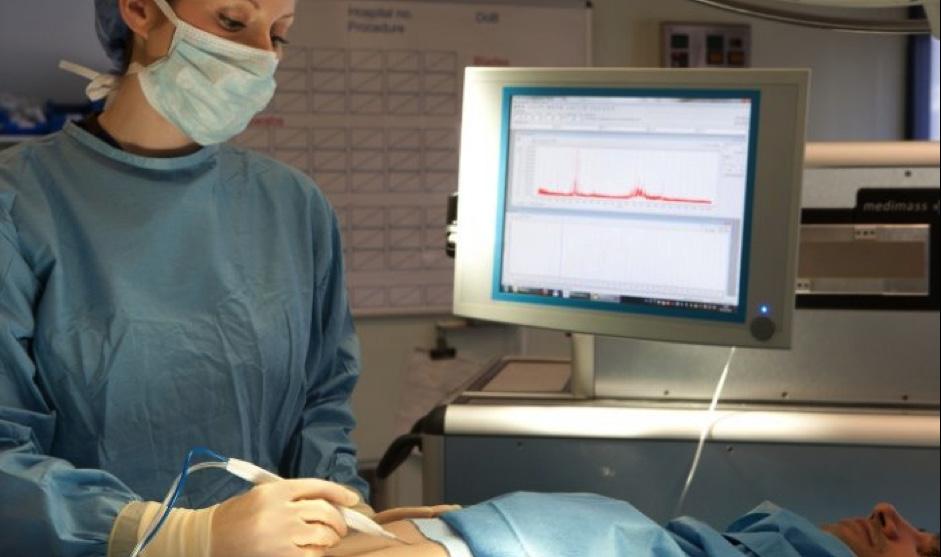
Scientists have developed a surgical knife which can tell whether the tissue it is cutting is cancerous or not. The ‘iKnife‘ analyses the vapours released by the cutting method and assess the chemical profiles. PAGE 13
RUSSIA
‘ANTI-GAY’ LAWS UNDER SCRUTINY

A bill banning “homosexual propaganda” in Russia has attracted critisism, outrage and protests from across the world.
The law, passed in June, prescribestion about homosexuality to people under 18.
Critics say its loose interpretation effectively hinders any kind of public gay rights event in Russia.
Broadcaster Stephen Fry has urged David Cameron to support moves to strip Russia of the 2014 Winter Olympics because of its new anti-gay laws.
In an open letter to the PM, the International Olympic Committee and London 2012’s Lord Coe, he said Russia was “making scapegoats of gay people”.
The government said it was working closely with organisers to ensure the Games were free from discrimination.
The Sochi games will be the biggest international sporting event in Russia since the Moscow Summer Olympics of 1980.
In Russia, it is illegal to give under-18s information about homosexuality.
In Mr Fry’s letter, which was published on his website, he compared the situation to the decision to hold the 1936 games in Nazi Germany.
He urged International Olympics Committee (IOC) President Jacques Rogge and his fellow committee members to “take
manity it is supposed to represent”.
A gay rights activist holds up a placard during a demonstration in front of the Russian consulate in New York on 31 July
North American gay rights activists demonstrated outside the Russian consulate in New York in July
“It is simply not enough to say that gay Olympians may or may not be safe in their village. An absolute ban on the Russian Winter Olympics of 2014 is simply essential,” he wrote
DAVID MIRANDA’S DETENTION PROMPTS OUTCRY OVER ‘GROSS MISUSE’ OF TERROR LAWS
The detention of the partner of the Guardian journalist who exposed mass email surveillance by the US government has been widely condemned as unlawful.
David Miranda was detained under schedule 7 of the Terrorism Act 2000. This allows police to hold someone at an airport, port or international rail station for up to nine hours for questioning about
whether they have been involved with acts of terrorism.
Senior British politicians have called on police to explain the reason why Mr Miranda, 28, was detained.
The Brazilian was held at Heathrow on his way from Berlin to Rio de Janeirowhere he lives with his partner, Guardian journalist Glenn Greenwald, who has published information from US whistleblower Edward Snowden.
“I remained in a room, there were six different agents coming and going, talking to me,” Mr Miranda said.
“They asked questions about my whole life, about everything.
“They took my computer, video game, mobile phone, my memory cards, every-

thing.”
Brazil’s foreign minister Antonio Patriota has called the detention of Mr Miranda
sought answers from his UK counterpart William Hague.
spoken to Mr Patriota and the pair had
remain in contact on this issue”.
The White House declined to comment on whether Mr Miranda’s name was on a “watch list” maintained by the US Transportation Security Administration.
It also declined to comment on whether the US was given access to Mr Miranda’s laptop or anything on the laptop.
EDITOR GETS BLISTERS
gair rhydd hour football match for charity, editor Tom Eden developed blisters that have been described as “basically bigger than the feet that they’re on.“
Nearly 40 players took part in the game played in Swansea, resulting in a great deal of pain for all involved.
Eden said of the blisters, “Imagine straping a medium sized mountain to the sole of your foot, pointy end up, and playing fooball on it. Yeah, that.“
The marathon style football match was held to raise money for Cancer Research and, at the time of writing, had raised over £3,000 for the charity. Donations can be made at http://www.justgiving.com/teams/ footballversuscancer

 Laura Som News Writer
Laura Som News Writer
Cardiff University Students’ Union has launched a brand new official Cardiff SU app that allows you to buy tickets for Union events including clubnights and live music gigs.
There’s also a calendar of everything that’s happening at the Union from training courses to society and club listings, along with lots of other free events. You can also get quick access to all special offers available at the Union and find out useful info like what time The Taf opens on a Sunday!
The new app also stores your tickets to events so now everything is in one place on your phone, so there’s no need to remember to bring tickets along to events, just grab your phone and go.
The Cardiff SU app is available on Android and iPhone – download it for free today!

The talk by wildlife expert and national treasure, to be held in September, sells out within 30 minutes
Rowan Whittington News EditorAs part of the Hadyn Ellis lecture series Sir David Attenborough will be speaking at Cardiff University on September 18th. Sir David has hugely influenced the public’s interest and knowledge about the natural world and his lecture, based on Welsh born Alfred Russell Wallace’s voyage to the Malay Archipelago, will be well received at Cardiff.
Attenborough describes Wallace as one of “the greatest of all field naturalists” and the lecture will explore his first observation of the birds of paradise. The University will be holding many events over the year to mark the centenary of Wallace’s death in 1913, including a free Public
lecture series, organised by the School of Earth and Ocean Sciences.
The Hadyn Ellis lecture series brings internationally renowned speakers to Cardiff University in memory of the former Deputy Vice-Chancellor and Pro ViceChancellor for Research. Hadyn Ellis CBE was an invaluable asset to the University and was integral in establishing Cardiff as one of the UK’s leading research universities. Sir David joins a list of distinguished guest lecturers from Sir Ranulph Fiennes OBE to former President of Ireland Mary Robinson.
The lecture sold out within 30 minutes when it went on sale in July, but will be screened live to other venues in the University. More information will become available this week.
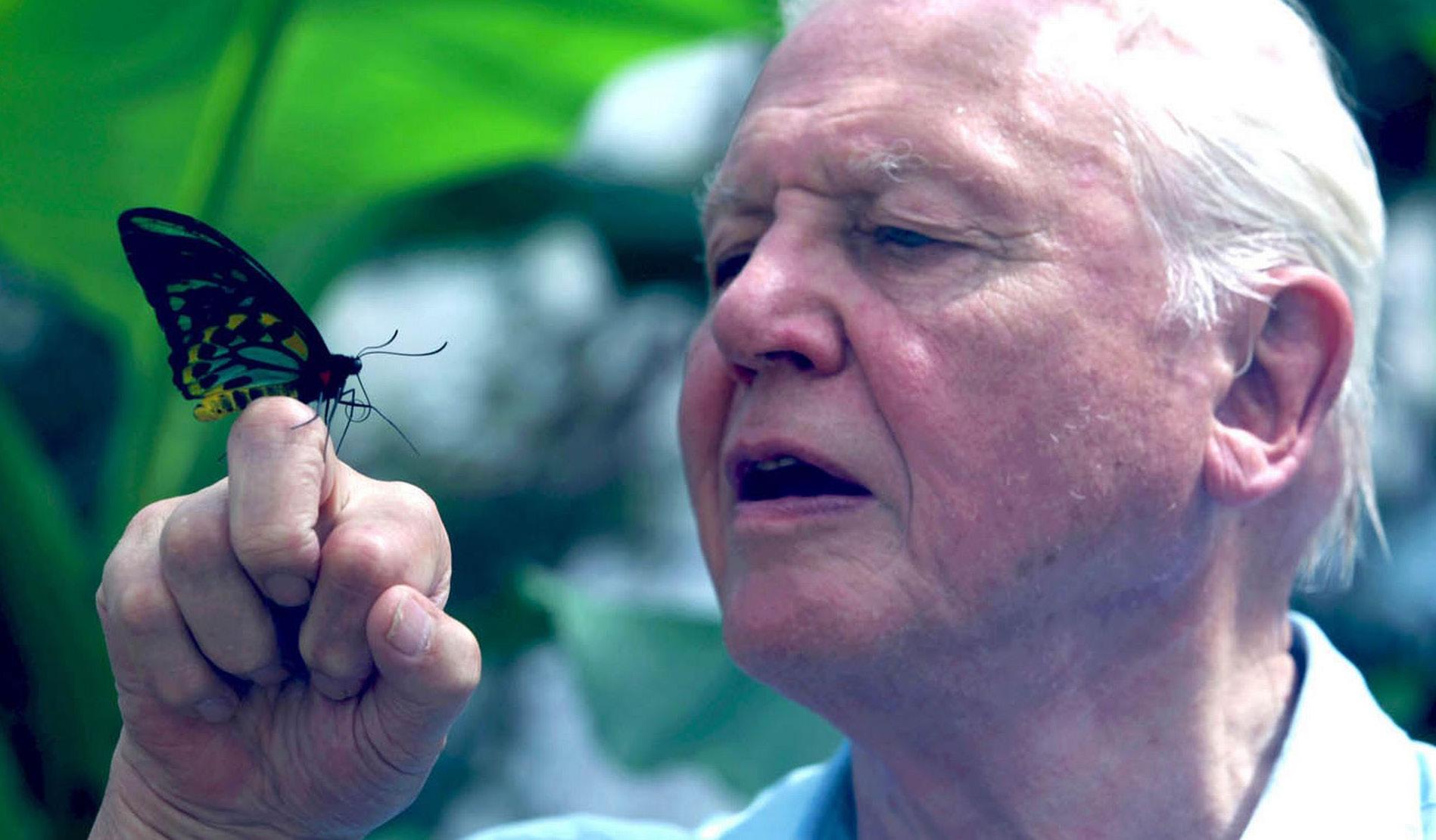
Statistics collected by the Higher Education Statistics Agency (HESA) in 2012 have shown that Cardiff University outranks Oxford University on graduate em-
ployment rates.
92 per cent of Oxford graduates were able to secure a job or a place on a post-graduate course up to six months after graduation; at Cardiff this figure is 93.7 per cent.
In The Guardian’s University League Table for 2014, published on June 3rd 2013, Cardiff is ranked
29th, and Oxford 2nd. Despite this sizeable gap in ranking, Oxford graduates are marginally less likely to secure employment than Cardiff graduates.
Cardiff was also found to outrank most universities in Wales, with only Cardiff Metropolitan University attaining a higher em-

ployment rate at 95 per cent. Varsity rivals Swansea scored 93 per cent.
In addition to this, Welsh universities in general had higher graduate employment rates than English universities; in Wales the figure was 91.6 per cent compared with 90.5 per cent in England. Scottish universities exceeded both, however, attaining a 92.8 per cent graduate employment rate, whilst Northern Ireland’s universities scored 90.9 per cent.
Surprisingly, a number of universities that are near the bottom of university rankings have higher rates of employment than the UK’s leading universities. For example, Bishop Grosseteste University in Lincoln, which isn’t even listed on The Guardian’s league table, has a graduate employment rate of 97 per cent whilst The University of Cambridge is ranked 1st and has a graduate employment rate of 94.9 per cent.
The statistics have been released shortly after research found that for every graduate position in the UK there are 46 applicants.
This means that the issue of graduate employment is as important
as ever; the findings of HESA will likely be reassuring to Cardiff University graduates and under-graduates alike.
It must be noted, however, that graduates in unskilled, or parttime, employment count towards the overall graduate employment statistics. Additionally, the institutions themselves collect data for these statistics, and graduate participation is not compulsory; considering both of these factors, it must be noted that the figures could be misleading. In addition to this, the study does not break down the statistics for each institution into graduate jobs, unskilled jobs and further education. This means that the simple fact of an institution having a high rate of employment is not necessarily a positive thing – it is possible that the majority may be going into unskilled work.
HESA’s study also fails to account for graduates who decide to travel, or take a gap year after graduation. Whilst they may not have succeeded in finding employment in the 6 months since graduation, this is out of choice and has no bearing on the quality of their institution.
Cardiff University will soon be the proud owner of a new Business School building as part of an enormous new construction project that will shape the course of the university’s history.
At the time of writing, construction is well underway after Cardiff city council welcomed this landmark piece of architecture to its cityscape. Approval was granted on 7th March 2012 for the construction to go-ahead with a proposed 2013 completion date. The new building will be a grand addition to the prestigious Welsh business school.
Business students will find the latest addition to their school on the Colum Drive campus, Cathays Park, situated in close proximity to the current buildings that are primarily used by their school. The project has warranted an extraordinary £13.5 million budget from Cardiff University for construction on the new building with much of this funding used to ensure it meets the intended ‘state-of-the-art’ standards set by the construction plans.
Such facilities, many students have been delighted to hear, include an exclusive 60 seat trading floor, an executive education suite, lecture theatres and flexible study spaces designed to meet all student needs. The centrepiece of this ambitious undertaking is to be an elliptical Harvard-style lecture theatre, offering an impressive addition to the learning environment.
Technical details released have described the lavish finish of the exterior, which includes a five-colour, vertically stacked terracotta rainscreen cladding, along with buff brick, curtain walling and powder-coated aluminium doors and windows. The building itself will also utilise an environmentally beneficial twin skin system. This, developers hope, will enable them to reach a BREEAM rating of “excellent’ for sustainability
which will be of additional benefit to the project.
So far details have emerged of the building’s enormous size with the structure comprising of four parts. A square, two-storey teaching wing, a four-storey office, administration wing, an elliptical 250-seat lecture auditorium and a central core/breakout area. The first floor will house flexible teaching space, a separate 153-seat lecture auditorium, office space and a postgraduate common room. On the second floor, there will be a house plant space and another postgraduate common room, with roof access to an external patio and biodiversity roof. The fourstorey block – the tallest part of the development, measuring 60ft (18.5m) – will also hold a further third floor of office facilities.
“The concept for the design of the new Cardiff Business School was for a building of landmark quality, delivering flexible teaching space with modular office allocations that could be adapted to the changing needs and requirements of the university,” said a Cardiff council report on the development. These were the same councillors who unanimously approved plans for the new facility at the Cardiff council planning committee meeting in March 2012.
“The auditorium element provides a dynamic feature wall comprised, primarily, of linear terracotta cladding of varying earth colours, creating a unique identity that distinguishes the auditorium from the rest of the building complex,” said a council officer in the report to the planning committee.
The 5,200sq metre development will include sustainable design elements, such as a solar thermal heating system, photovoltaics for renewable electricity, and rainwater harvesting. The structure will replace a 200-space car park covering about 1.4 acres, located between the Julian Hodge Study Centre the Humanities building. Councillors were told that a foot bridge would also be constructed across the adjacent railway line to help with pedestrian access.
‘‘
The concept for the design of the new Cardiff Business School was for a building of landmark quality, delivering flexible teaching space
Headlines were made on the 28th April of this year when the First Minister of Wales, Carwyn Jones, paid a visit to the construction site. In a symbolic demonstration of the metaphorical ground broken by the project, he aided the construction workers by gamely ‘breaking ground’ with a large pneumatic drill. Simultaneously he offered a ringing endorsement of the multi-million pound project and said proudly:
“Today represents the first step towards another major development in the history of Cardiff University and Cardiff Business School. We want to see a strong Higher Education Sector here in Wales. One which attracts and retains the highest quality students, built around the needs and expectations of learners and offering the best experience and outcomes. The plans for this new business school fully support that vision.”
Jones was accompanied by Roger Lewis of the WRU and Alan Edmunds of Media Wales, both of whom are members of the School’s International Advisory Board. They both expressed similar sentiments of enthusiasm about the benefits of the school, with an emphasis on Welsh national pride.
Additional championing of the project has arrived from the higher echelons of the university faculty. Professor Colin Riordan, Vice Chancellor of Cardiff University, has boldly claimed that “This investment in the business school’s facilities reflects our confidence in its outstanding performance” – a ringing endorsement for the leading business schools in Wales.

He adds that ‘It will markedly improve our students’ experience of studying in Cardiff, providing excellent facilities. Independent studies tell us that the business school contributes £76 million per annum to the Welsh economy. This new building will help us to sustain and improve that contribution.”
Dean of Cardiff Business School, Professor Martin Kitchener, said “We are an ambitious business school. This new building gives us an opportunity to support innovations in our teaching through cutting-edge lecturing facilities. It also gives us the opportunity us to expand our growing portfolio of executive education with a suite specifically designed to meet the need of busy professionals.”
Although primarily intended to improve the experiences of students, a project of this scale must undoubtedly cater to the needs of additional demographics. The intention is to provide bespoke facilities for the School to host conferences and events for business people and policy makers. As business school students will undoubtedly be aware, the current situation has lectures scattered across a number of campus buildings, which according to one student has inconvenienced many people, who feel that they need a centralised building for all lectures. It would seem that this desire will finally have been realised when construction is completed later this academic year.

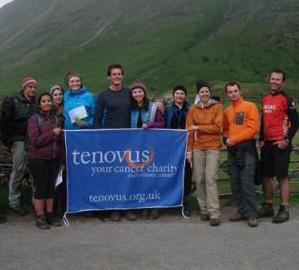 Rowan Whittington News Editor
Rowan Whittington News Editor
Cancer researchers from Cardiff University completed a 16-mile trek in aid of Tenovus, Wales’ leading cancer charity. The ‘Rambling Researchers’ finished with a time of 13 hours and 37 minutes and raised more than £2,000 for the charity.
Hiking across the ten highest peaks in the Lake District “definitely wasn’t easy” according to Dr Kirsty Greenow, the team leader and Research Associate at Cardiff University’s School of Biosciences. She went on to describe how important the work that Tenovus carries out is, saying that the funding Tenovus and other charities provide towards cancer research is vital in helping researchers un-
derstand how cancers can be treated more effectively and improve the lives of cancer patients. Taking on this tough challenge allowed Cardiff University’s research team to show their support for the organisation in a grueling trek. Dr Greenow hopes that the University will continue to take part in this annual fundraising event. Everyone that was involved found the experience really re-
warding and Bethan Palfrey, Challenge Event Fundraiser at Tenovus has said that the support from Cardiff University is “fantastic” and they hope to continue working closely with Cardiff. As it is Tenovus’ 70th Anniversary this year there will be many more opportunities to get involved with this year. If you would like more information visit: www.tenovus.org.uk
Cardiff University has been found to be the cheapest place to be a student in the UK.
A study by MoneySupermarket compared a number of factors which contribute to the cost of being a student, and Cardiff came out as the lowest priced instutution to get your degree.
Granted, with the cost of a university education at an alltime high, labelling any university as ‘cheap’ seems a little extravagant. The difference in cost throughout the country, however, is greater than you might think.
Tuition fees of up to £9,000

may grab the headlines, but they are not the only expense to bear in mind. When calculating the cost of university it can be all too easy to overlook the cost of day-to-day expenses and ‘hidden’ costs associated with degrees courses.
In terms of tuition fees there is relatively little variation in cost across UK universities. However, if you factor in the cost of accommodation and general living, the difference can be substantial.
The survey, conducted on 31 universities across the UK, set out to calculate the “true cost” of university by looking at what students could be missing out on if they had been earning a living wage.
What their research revealed was that going to university, as opposed to entering full-time employment, could leave you up to £75,000 out of pocket, depending on your choice of course, lifestyle and entitlement to any financial support.
On a brighter note, of the universities included in the study, Cardiff students were found to have the lowest weekly budget at £153, an impressive £41 below the national average. Unsurprisingly, London Universities topped the table with students at the City University London budgeting a staggering £241 per week.
Cardiff was also named as the cheapest for accommodation
with rooms available for a mere £55 per week, whilst John Burnett House at Pollock Halls in Edinburgh charges an extortionate £231 per week. Catering for those who prefer to live in the lap of luxury, each en-suite “superior room” is complete with a lounging area and includes five breakfasts per week along with “brunch” at the weekend.
In contrast, Cardiff’s Talybont residences may not offer such a lavish lifestyle, but you could save money in the long run.
Housing costs put to one side, the survey found that the second largest contributor to the increasing dent in a student’s overdraft is food. According to research the average Cardiff student’s shopping basket costs £50 a week – perhaps something to keep in mind on your next trip to the supermarket.
Socialising is also a major culprit. The NUS estimates on average students spend £675 per year on nights out. As with everything else, however, the cost of club entry and drinks does vary greatly from university to university.
A recent study by VoucherCodes.co.uk in fact found Cardiff to be the cheapest for alcohol, of the universities surveyed across the UK, based on the cost of the student union price for a round of drinks. Yet another money saving perk of the Welsh capital justify increased consumption.
Council aims to ‘work with students to benefit the local community’
Cardiff Council is re-launching a website for students – www. cardiffdigs.co.uk - to continue to provide information on a range of services and advice to benefit students moving from halls of residence to properties in the local community.
Students play a vital role in Cardiff’s economy with 36,000 students living in Cardiff, making up 10.4 per cent of the population. The website provides information on a range of services from advice on accommodation, relating to bonds, contracts, tenants’ rights and responsibilities to waste and recycling information.
Ashley Govier, Cabinet Member for Environment at Cardiff Council, said: “Students contribute significantly to the local economy and, as they move around the city regularly, the relaunch of the website intends to be the first point of call for information on Council services. It is important that students know when their bin day is, understand that their actions do affect their neighbours and the website provides the information that they need to integrate into the local community.”
Emma Robson, Student Liaison Officer for Cardiff
Council, added: “The Council is committed to continuing to work with students to benefit the local community and my role is to liaise with the three universities and other external organisations to ensure that students are aware of their responsibilities and the council services available.
“Different campaigns involve working with other organisations and a key partnership is with the South Wales Police to ensure students’ stay in Cardiff is safe and enjoyable.
“Often when moving from halls of residence to private rented accommodation, this is the first time students live away from home in the local community and the website intends to provide the information so there is a smooth transition benefiting themselves and their neighbours.”

The QS World University Rankings, one of the world’s most influential and widely recognized university rankings, has listed Cardiff University in the top 200 for 20 subjects.
The QS World University Rankings by Subject published in May 2013 lists Cardiff amongst the world’s leading institutions in subjects such as Geography, Media Studies, and Chemistry.
Cardiff’s Geography course did the best in the rankings, coming
in at 48th whilst Media and Communication came 52nd. A total of eight courses taught at the university finished in the top 100.
12 of the Cardiff courses appearing in the rankings have either improved on their rank from 2012 or are appearing there for the first time.
Launched in 2011, the QS Subject Rankings provide a list of the best institutions for 30 separate disciplines. This allows prospective students to judge
which university would be best for them by their preferred area of study, rather than looking at the institution as a whole.
Professor Patricia Price, Pro Vice Chancellor for Student Experience and Academic Standards said “To have our strengths recognised – in so many subject areas –is outstanding.” She did however go on to play down the importance of league tables, pointing out that
many subjects taught at the university are not included in the QS rankings.
Cardiff University as a whole was ranked at 143 in 2012, although this represents a decline on previous years, having dropped 44 places since 2007. Despite the drop, Cardiff remains the highest placed university in Wales.
The QS World University Rankings were first published in 2004
and are regarded alongside the Times Higher Education World University Rankings and the Academic Ranking of World Universities as the most respected university rankings. The QS Rankings evaluate 2,858 institutions across the world, with only 678 of those having at least one subject in its respective top 200.



Following its most successful year ever, the Get It Out for Cardiff (GIOFC) campaign has teamed up with Cardiff Raise And Give (RAG) to put on a number of bric-a-brac sales over Freshers’ Week.
GIOFC is a recycling and re-use campaign aimed at students, where household items are donated when moving out of halls or houses.
Helen Dent, Cardiff Students’ Union Vice President Welfare, advised: “If you’ve just arrived in Cardiff and you’ve forgotten to bring some of life’s essentials with you, head to the bric-a-brac sale. There will be an array of items, all available at student friendly prices.”
They will both be held in Solus, on the second floor of the Students’ Union building. The first date is Friday September 20th from 10am to 3:30pm, and the second is Tuesday September 24th, also between 10am and 3:30pm.

*
As the UK’s No.1 student insurance specialist we understand that accidents happen anywhere and at anytime. In fact, most student insurance claims are for theft, loss or accidental damage outside of their rooms.
To really protect your gadgets wherever you are, choose from one of our great packages. So you can insure both your laptop and phone with Endsleigh for only £8.99 a month.*

75% of all student laptop claims are for accidental damage.
64% of all mobile phone claims are for theft and loss.


Q. Introduce yourself
A. I’m Ollie, your VP Education and a recent graduate of Law & Politics. I initially chose Cardiff because of the city’s attractions – international rugby, consistently the best student night out in the UK. It wasn’t until getting here that I fully appreciated the quality of the University and the respectability of Cardiff graduates.
What is your role?
I represent you on all things academic and University related. So, things like lecture quality, extenuating circumstances and library resources all come under my role, as well as more pastoral things like how effective your personal tutor is. I also coordinate and support the Student Academic Reps who represent you on a school level and chair Academic Coun-
Q. Introduce yourself
A. Hi there, I’m Cari. I’m a 22 year old politics graduate who sort of fell into the student movement through being involved with Welcome Crew and Cardiff University Rowing Club.
What is your role?
I’m your Students’ Union President. I’m clinging on to almost-student life for another year as I found being your AU President last year - whilst a challenge - really enjoyable.
What do you plan on doing this year?
The list of things I’d like to do is endless, but I’ve split my priorities into 3: Union, University and Community.
cil where Reps discuss University wide issues that I then take to the University (often along with the President) to sort out.
What do you plan on doing this year?
This year is an important and exciting year for the University as it is going under Institutional Review (a process that happens every 5 years) so now is the time to make some real constructive changes to the institution. I want to move the University towards a new form of assisted learning and hope that by September 2014 all lectures will be recorded and available for students to re-listen to at home. I also want liberation to be a focus for the year and
(e.g. LGBT+ or Students with Disabilities) within each school to provide a pastoral support
Union things include diversifying our commercial services, securing plans and investment for an outdoor social space (I’m thinking Taf-top Terrace) and investigating who engages with the Union in different ways. University lobbying will be for campus improvements
barriers to opportunities as well as stressing the importance of electronic feedback and an online progress tracker for every course. Finally, I want us to collectively work on our relations with the local community and start seeing ourselves as residents rather than students being pitted against locals. This means shouting about the good that students are already
for students who identify into those groups. I hope to engage course based societies with Academic Representation, particularly in schools which have a strong and vocal society but a struggling Student Rep systemlaboration.
If you could go back and give ‘fresher Ollie’ one piece of advice, what would it be?
Pre-conceptions you bring to University will be challenged and, provided you’re prepared to engage with that, it will be a good thing. If you enter with an open mind, you will receive an education far beyond the content of your course and stand to learn a lot about yourself.
You’re hosting a dinner party and you can invite any
doing in the local community, as well as launching new projects from working with schools to formalising regular communications with local councillors.
If you could go back and give ‘fresher Cari’ one piece of advice, what would it be?
I’d tell fresher Cari to make the most of every minute of being a student and get involved with the Students’ Union from
much quicker than you think and it’s easy to miss out on so many brilliant opportunities.
You’re hosting a dinner party and you can invite any three guests. Who do you choose?
I’d invite Billie Jean King, she
three guests. Who do you choose?
Elton John, not just to provide the music, but because he’s a hero and inspiration of mine; I think he probably has some dirty jokes as well. Rosa Parks because she’s pretty damn inspirational. Harold Macmillan, so we could have a chat about Profumo and what he would
What would your superpower be?
Instant teleportation (or apparition to Harry Potter fans) so I can experience the world without having to travel. Just imagine getting up and visiting the Himalayas before breakfast! I’d also never be late for meetings.
got angry about the unequal treatment of women in sport and did something about everything I don’t understand about the world and pick up some pub quiz trivia. Thirdly, Stevie Wonder, in the hope that at some point we could all sing around a piano.
What would your superpower be?
be the ability to teleport anywhere instantly at any time. Useful for avoiding all sorts of unwanted situations and I’d be able to see the world on weekends.


Q. Introduce yourself
A. Hi, I’m Edore, your Sports & Athletic Union President. I’m from Coventry, near Birmingham, and studied Economics. I
What is your role?
in the University to improve and develop competitively, socially or as part of the community.
What do you plan on doing this year?
what would it be?
and Cardiff Student Media. I’m also in the process of improving the AU’s
If you could go back and give ‘fresher Edore’ one piece of advice,
You’re hosting a dinner party and you can invite any three guests. Who do you choose?
What would your superpower be?
Q. Introduce yourself
A. I’m Tom. That’s me there, holding a frame. I’m a journalism graduate, smiley, competitive, passionately political and thrilled to be doing this job!
What is your role?
VP Media and Marketing. It primarily involves editing this paper, overseeing the other areas of student media; Quench, Xpress Radio and CUTV. This means I get to work with an incredibly talented, fun & committed people to create content that entertains, engages and informs students. As part of the Students’ Union, always

guided by the needs and opinions of students.
What do you plan on doing this year?
I want to make all the aspects of student media more integrated because they can compliment each other so well; it produces great content and fosters a fantastic environment to be part of. In addition to this, I want to increase the revenue student media gets through advertising so that secure and we can invest in new and better ways to engage with students. All while maintaining journalistic integrity, of course.
If you could go back and give ‘fresher Tom’ one piece of advice, what would it be?
Do as much as you can from the beginning of Uni. You’ll hear it lots, but there are so many opportunities to get involved with things. One bit of advice I did get (from last Curtis) was ‘run for election’ – I would encourage anyone to do it too!
You’re hosting a dinner party and you can invite any three guests. Who do you choose?
David Mitchell – in my opinion the funniest, most intelligent comedian today.
Tony Benn – an inspiring admirable values and a great orator.
Jesus – obvious reasons, plus the catering would be sorted!
What would your superpower be? Time travel. I always seem to be busy, and this would enable me to have a bit more time - ‘Bernard’s Watch’ style.
(If you don’t remember Bernard’s Watch, don’t tell me - it’ll only make me feel old.)

Q. Introduce yourself A.
What is your role?
Q. Introduce yourself
A. Hi, I’m Helen, your VP Welfare. I’m from Plymouth and have just graduated in Law.
What is your role?
My role is to run campaigns to highlight important issues to students.
What do you plan on doing this year?
What do you plan on doing this year?
My priorities this year are mental health, student housing (focusing on both halls and the private sector) and sexual health.
If you could go back and give ‘fresher Helen’ one piece of advice, what would it be?
Get involved and meet as many people as you possibly can!
You’re hosting a dinner party and you can invite any three guests. Who do you choose?
I would invite Ryan Gosling, Ian Somerholder and Neil Patrick Harris.
What would your superpower be? My superpower would be the power to be telapathic.

If you could go back and give ‘fresher Gemma’ one piece of advice, what would it be?
Q. Introduce yourself
A. Hi I’m Elliot, your VP Societies & Campaigns. I’m from a small village in the Welsh valleys around 15 miles North West studying Business Information Systems, in the school of Computer Science. Oh, dwi’n siarad Cymraeg hefyd!
What is your role?
As part of my job, I champion societies, campaigns and student-led activity in the University, Union and local community. I also
You’re hosting a dinner party and you can invite any three guests. Who do you choose?
What would your superpower be?

What do you plan on doing this year?
I am keen to increase our levels of student engagement by introducing new societies. I also plan to improve sponsorship and marketing opportunities for societies while working with leading graduate recruiters.
If you could go back and give ‘fresher Elliot’ one piece of advice, what would it be?
only gets harder. Your course, that is.
You’re hosting a dinner party and you
can invite any three guests. Who do you choose?
Barack Obama, Sir Richard Branson and Sir David Attenborough
What would your superpower be?
THURSDAY 3RD & FRIDAY 4TH OCTOBER



I was away.
Ever since my elder brother took a ski season to Canada before he went to university, I’ve wanted to take a year out.
When he came back, I saw firsthand the difference a year out makes. So when it was my turn, I jumped at the chance to become completely independent for a year, gaining confidence, self-reliance and invaluable life skills, all whilst having fun at the same time.
I threw myself into the deep end by flying 13,000 miles away, and it was without a doubt one of the best decisions I’ve ever made.
I decided to travel Auckland, New Zealand as a ‘Gappie’ – a student that works as a teaching assistant in an independent school but doesn’t hold proper qualifications. Therefore, my year out consisted of a lot more work than others I knew travelling the world. Nonetheless, I managed to make the most of the time I had when
I played rugby for Auckland University through contacts I made at the school I was working in, and in the school summer break I travelled all over New Zealand doing a ‘Kiwi Experience,’ and even got to a few of the Pacific Islands in the Easter break!
In no way did I feel I missed out on starting university a year after the majority of my school friends. Furthermore, the impact of rise in fees to £9,000 is numbed down with the rate in which the loan is paid back, so in that sense it’s a case of swings and roundabouts. Also, the argument of “I’m scared if I take a gap year I’ll never want to come back to go to university”, well, if that happened, then you subconsciously never wanted to go to university in the first place.
Ask anyone who has done a gap year, whether it was travelling through Asia, working on a farm in Australia, or bar work on the slopes in the Alps. They’ll all say the same thing; taking a gap year before university was one of the best thing they’ve ever done.
Ah, the humble gap year (yah?). Some say it’s a rite of passage, equivalent to one’s first experience of sodden inebriation or fumbling first steps into sexuality (both often occur simultaneously of course). Yet, with the chief executive of the universities and colleges admissions service (UCAS) recently declaring that “the golden age of the gap year is over”, perhaps the time has come to trade in that soul-searching Bolivian escapade for something a little more, ahem, useful?
It seems the usual ‘gappahs’ have travelled to faraway shores to do, in productive terms, very little. At a time when competition for university places is fierce, and a degree alone is simply not enough, can you afford to be unproductive for that long? If you’re intrigued to discover whether your year out was a classified gap yah, then answer this. Would you include any details from it in your CV or university applica-
tion? Both universities and employers are expecting candidates to strengthen their application with relevant details. Smoking Taiwanese shisha through an elephant’s trunk may make for excellent cover photo material, but it won’t impress a prospective employer. That aside, the phenomenon of the ‘volunteering’ gap year isn’t just unproductive it can actually prove counterproductive. The incessant drivel of the deluded bourgeoisie who proclaim that they selflessly build wells in ‘Ken-yah’, which of course ‘really opened my eyes to the pover-tay’ is testament to this. These affluent travellers are actually volunteering for jobs that local people could earn money for, and thus harming the economy long-term. Picture the scene. A scorched and destitute Kenyan township, struggling in every conceivable sense, is graced by the presence of fifteen pale and chirpy teenagers carrying three tins of paint and a stepladder. “Hooray!” the locals cry, “our prayers have been answered!” I think not. More likely,
they’ll question the cost of sending fifteen westerners out there and whether a poorly-built well and a lick of paint is a fair return. Orphanage volunteering represents the worst excesses of this Western indulgence. UNICEF agree, commenting that “The open access of volunteers to children presents a significant child protection risk,” adding that overseas volunteers and tourists should not visit residential orphanages at all. Shockingly, a recent study showed that only 28% of children in Cambodian orphanages were actually orphaned at all. Essentially, the constant flow of rich ‘volunteers’ meant that two desperately poor parents would give their child to an ‘orphanage’ as the only means of ensuring their welfare. Justifiably, most campaigners now ask concerned people to give money to established charities working in these areas, rather than volunteering.
However, call me cynical, but I can’t imagine many would donate the cost of their trip and stay at home.
Sam Parsons Opinion WriterIwant to say a big welcome to all the new and increasingly sickly first year students here at Cardiff. That is providing you can actually read this through the inevitable tears of exhaustion, or perhaps you simply picked this up to blow your nose…I take offence if you did.
You may have been told that the reason first year students are placed in halls is to increase sociability and make leaving home a less daunting experience. However the truth of the matter is that they serve as a perfect quarantine zone from your inevitable freshers’ flu. I heard that they considered mirroring the Foot and Mouth epidemic and burning all infected freshers in
a nearby field, however health and safety stepped in. So, unfortunately for those in University Hall, quarantine must sadly suffice.
Anyhow, for those yet to suffer with such symptoms as a fever, sore throat, severe headache, coughing or vitriolic hate mail from your liver, here are some ways to avoid contracting the infamous fresher’ flu.
Eating well is simple but proven advice; fast food may seem cheap and easy but doing a weekly shop and cooking for yourself will work out much cheaper, especially if you team up with your flat mates and split the bills and cooking responsibilities. If freshers’ week has passed by and you can no longer name a single vegetable, stock up
on multivitamins.
Actually sleep. Try to balance your nights out with nights in to avoid complete zombification. Some people get lucky with their timetables however a busy schedule isn’t compatible with consistent late nights for long. Eventually your immune system will go to bed even if you don’t bother.
Finally, exercise boosts your immune system and is also a great way to meet new people during freshers’ week. Consider joining any sports clubs that appeal to you as well as the University gym.
With this in mind, stay healthy, and if that’s not possible please avoid contact with the wider population.

Porn. It’s the entertainment industry that gets schoolboys snig-

gering, politicians quivering and Mumsnet up in arms.
The adult entertainment industry used to be the preserve of dirty old men and brown paper bags in newsagents, but is now the business of depicting sex is a colossal money- spinner. Since the start of 2013, there have been over one billion internet searches for porn and estimates suggest that anywhere up to 37% of the internet is purely pornographic.
Although this figure is disputed,
it is still alarming. Which is why I find the Coalition’s plan to block all pornography, to all British households, unless they opt in, completely baffling. Not only would the legislation create some very awkward conversations, but if 37 per cent of the internet is porn, how on earth are they going to block it all? Parliament have made it unequivocally clear that the plan is to halt access to illegal pornography, such as child porn, rape and female subservience; but that this can only be
achieved through a blanket ban.
A blanket ban will censor all material, regardless of legality. Once again those at the top of Westminster’s ‘slippery pole’ are facing the timeless ‘slippery slope’ argument. Censoring legal material poses serious questions about the role, intrusion and power of our government.
Don’t get me wrong, wanting a ban is completely understandable, but the execution is completely inadequate.
 Beth Lyons Opinion Editor
Beth Lyons Opinion Editor
I was sitting at home with the cricket on the TV, when my younger cousin retorted that “women are not meant to watch cricket”. He also finds it surprising that women receive the same amount of competition money as their male counterparts at Wimbledon. This led me to question why sportswomen are perceived differently to their male counterparts. Why are women still treated unequally within the sporting world? Examples of gender prejudice are present within all tiers of sport, from grassroots level continuing into the professional realms, highlighted by the opinions of my 12-year-old cousin.
First, there is the obvious lack of media coverage; women’s sport constitutes a mere 5% of
all sports journalism and broadcasting. Women in sport struggle against existing prejudices with an alarming number of sporting institutions only permitting male members, including Muirfield Golf Club, the setting for this summer’s Open Golf Championships. Arguably the most frustrating aspect of currently being a sportswoman is the disrespect many males display towards them. Comments focusing on female aesthetics are becoming increasingly common, with less regard paid to their athletic talents than their male equivalents. Two prominent male broadcasters have fallen foul of this over the summer of sport, with John Inverdale commenting that reigning Wimbledon champion Marion Bartoli was “never going to be a looker”. This suggestion bore no relevance to the fact that she had just won her first major title. Co-
If you’re a fresher reading this, you’re about to embark on what will probably be the best three years of your life.
After settling in and struggling to remember what occurred during fresher’s week, it will be time to visit the multitude of freshers’ fayres.
Regardless of how hungover you may be, these fayres are a great chance to find out about and possibly sign up to a vast array of societies and sporting clubs. Even if there’s nothing you expect to interest you, there’s a high chance something will grab your attention and next thing you know you’ll be playing for the korfball team. Cardiff Societies cater for the majority of interests imaginable, ranging from the Funky Arse Dancers, to the Harry Potter Society via the Real Ale Society (yes, this really does exist).
Many of my second year friends tell me that their one major regret of first year - apart from that ill fated one night stand - was not getting involved with more activities. Becoming part of a society is not only a brilliant way of making friends, it might just turn out to be the highlight of your time at university.
lin Murray also recently landed himself in hot water over commenting that his ultimate athlete would possess “the stamina of Mo, the speed of Bolt, the leap of Rutherford and the bottom of Jess Ennis”. It is poignant that he celebrates Ennis’s aesthetics as opposed to her sporting prowess; Murray could have chosen one of seven disciplines that the current Olympic Heptathlete champion excels in. Unfortunately, gender inequality in sport seems to be a problem that will linger for many more years, much like John Inverdale himself. For now, I’ll have to adopt a sense of “if you can’t beat them, join them”, so my perfect athlete would consist of Paula Radcliffe’s stamina (and bladder), Nicole Cooke’s determination, Laura Trott’s pace and David Beckham’s legs...

Cardiff is well known in the international community for its high calibre research and this reputation has been reinforced significantly this year.
Firstly, thanks to a £50 million fund from the Welsh Government called Sêr Cymru (Stars of Wales) to entice world class researchers to Welsh Universities, Prof. Yves Barde joins Cardiff University. He takes up the role of Sêr Cymru Research Chair in Neurobiology at the School of Biosciences. Prof. Barde received international recognition in 1989 for the discovery of a gene which is responsible for producing brain derived neurotrophic factor (BDNF). This protein, BDNF, has a number of important functions within the brain such as encouraging the growth and differentiation of new synapses and neurons. The effect it has on synapses and neurons is important in learning, memory and higher brain functions. Prof. Barde has explored the role BDNF plays in healthy brain function along with dysfunction, research that helped develop the first oral treatment for multiple sclerosis, a disease which affects a neurons ability to communicate with each other. On coming to Cardiff University, he said “Some of the work I’ll be undertaking in Cardiff will be about understanding the meaning of the link between the nervous system and neurological diseases which currently remains pretty mysterious, particularly in the case of depression. But alongside several outstanding research groups at Cardiff University, I will also aim to advance research using embryonic stem cells and reprogrammed somatic cells to advance understanding of neuronal dysfunction. This is a really exciting time for me, and for advances in neurobiology and for science in Wales.” Cardiff is already well known for its work in stem cells having the Nobel Laureate Sir Martin Evans as Chancellor who discovered embryonic stem cells, cells which can develop into a variety of other specialised cells in the body. Economy and Science Minister, Edwina Hart, said: “Professor Barde brings a wealth of experience and is a world renowned innovator in the field of neurobiology. He will lead a strong team at Cardiff University and their work will be a great boost to life sciences and health research in Wales.” Whilst the appointment of Prof. Barde is a massive achievement for Cardiff University and recognition of its research as world class, two researchers already world famous have been honoured by The Royal Society, Britain’s premier society for scientists. Firstly,
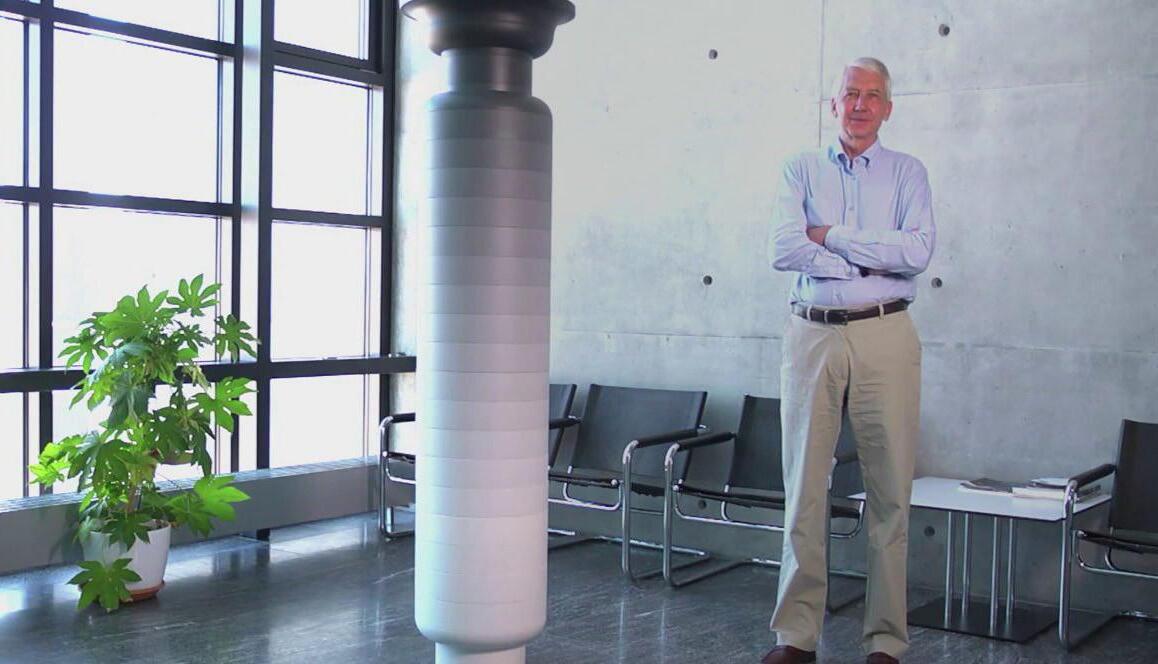
This is the greatest thrill career and I hope that my Royal Medal will add lustre to Cardiff University
Professor Peter Wells CBE, FRS Royal Medal Winner Cardiff School of Engineering
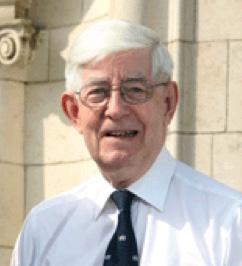
the director of the world’s largest catalysis group in the world Prof. Graham Hutchings FRS (School of Chemistry) won the prestigious Davey medal for his discovery of the catalysis by gold. The Davy Medal is awarded annually “for an outstandingly important recent discovery in any branch of chemistry”.
A catalyst is a substance that facilitates a reaction without being consumed, an important field which helps maintain our current ability to manufacture modern conveniences like petrol and plastic. Gold, whilst expensive and inert in its bulk form can be shrunk down to nanoparticles consisting of roughly 7 atoms and 2-5 nanometres wide, creating highly active species requiring little actual gold. This allows gold to be used for a variety of green reactions such as direct hydrogen peroxide synthesis from oxygen and hydrogen to oxidising aromatic alcohols (alcohols containing a benzene ring) to aldehydes which are important precursor compounds. Professor Hutchings, FRS said: “It is a great honour to receive this recognition from the Royal Society for my work on gold catalysis. It has been a great pleasure to me to have helped change perceptions about gold. It is not just a pretty useful too.”
A Royal Medal for interdisciplinary sciences has been awarded to Prof. Wells (of the School of Engineering) for pioneering the application of the physical and engineering sciences to the development of ultrasonics as a diag-
Professor Barde brings a wealth of experience and is a world renowned of neurobiology. He will lead a strong team at Cardiff University a great boost to life sciences and health research in Wales.
Hart Economy & Science Minister
nostic and surgical tool which has revolutionised clinical practice.
Professor Wells, FRS said: “This is the greatest thrill in my scientific career and I hope that my Royal Medal will add lustre to Cardiff University. Interdisciplinary research has been part of my career from the very beginning. Throughout my career I have worked with health professionals in the National Health Service and with engineers and physicists.”

Following great success from the last major mars launch, the Curiosity Rover in November 2011, NASA has recently announced goals for another upcoming and unmanned mission to Mars.
The new rover, affectionately known as Mars 2020 after its intended launch year, will be of a similar design to Curiosity and be tasked with the collection and storage of rock samples for later retrieval.
A little over a year since its landing, Curiosity has been working its way across Mars analysing soil and rock samples in an attempt to find evidence that, amongst other things, Mars once
had the potential to support life. Whilst Curiosity’s mission is primarily analytical, Mars 2020 is expected to take a step forward in terms of research: Its primary mission is attempting to locate actual indications of the presence of ancient life to be returned to Earth for study. Sample return has been of a high priority within the Mars research community for some time.
However, some key researchers argue that this step forward is not as large as it could be. Professor Paul Davies of Arizona State University describes the announcement as “the same old depressing story of NASA vetoing any proposal to do biological experiments on Mars.”
Given the success of Curiosity in determining that parts of Mars
have previously been habitable, it is argued by some that NASA should be spending time searching for microbes that are presently living on Mars, rather than those that may have once existed.
The technology for such onlocation study is available. Chris Carr of the Search for Extra-terrestrial Genomes (SETG) believes that DNA analysis on Mars is both possible and preferable to returning samples. While acknowledging the importance of sample return, he states that “we should not wait until we have all parts of that mission to look for extant life on Mars.”
Other suggestions for more direct research involve creating small habitable areas on Mars with the hopes of encouraging dormant microbes to develop.
Researchers at the Washington University School of Medicine, in collaboration with the Universitat Pompeu Fabra in Barcelona and several prominent European universities, have created a computer simulated model of the brain that can daydream.
The model takes into account the many neural connections that brain cells make, both in local clusters and across the brain, to simulate and observe brain activity during idle periods. Having been aware since the late 1990s that the brain is actively busy even during periods of apparent inactivity, researchers hope that this model might provide further opportunities for studying these processes.
Professor Gustav Deco, head of the Computational Neuroscience
Group in Barcelona has described the focus on neural connections within the model, stating: “we treated small regions of the brain like cognitive units: not as individual cells, but as groups.” The researchers began by simulating small groups of neurons and, using data available from brain scans, connected a total of 66 cognitive units in each simulated hemisphere to simulate natural connections.
By altering the frequency at which units of cells were likely to send a signal, the scientists were able to configure them to begin the signalling process at random low frequencies, similar to existing data of the brain in a resting or daydreaming state.
This process was further experimented upon by changing the strength and nature of the connections between units, achieving co-ordinated patterns of brain activity.
Professor Deco commented that “the spatial pattern of synchronisation that we eventually ob-
we see in scans of resting human brains.”
While researchers have been able to simplify the calculations to the point at which the model may be run on a typical computer, generating 20 minutes of simulated human brain activity still took several powerful computers around 26 hours.
It is hoped that despite the required time investment, the model will enable scientists to further study how the structure of the brain contributes to brain activity while resting.
In addition to allowing research into brain activity during daydreaming, the model may prove advantageous in helping to both diagnose and treat brain injuries.
Some resistance has also been offered to the Mars 2020 proposal from the White House. The current plans of drilling for samples to be returned to Earth require two additional missions for the sake of retrieval, further eating into federal budgets. NASA maintains, however, that Mars 2020 is projected to cost only $1.5 billion, $1 billion less than Curiosity. This is within their annual budget of approximately $1.8 billion presently, a mere 0.5% of the federal budget. It has also been suggested that the samples could be left, without risking compromising the results, until money becomes available for retrieval at a later date.
While Curiosity currently trundles slowly towards and up a 5km mountain, Mount Sharp, for collection purposes, discussion of the Mars 2020 plans continues back on Earth. One of the key problems is designing a cache
suitable for holding the samples and protecting them from the Martian elements. Such a cache was intended to be present upon Curiosity, but scrapped at the last minute due to expected ineffectiveness.
If samples can be stored and eventually returned, however, it is expected that a great deal may be learned from them. By equipping Mars 2020 with drilling components able to retrieve rock cores, samples of even greater quality may be obtained. Support exists for the current proposal from various panels and groups within the scientific community, yet this is rivalled by concerns from prominent researchers and White House budget officials. With an expected launch of 2020 however, NASA still has time to convince the scientific community of their research methods, or to consider other options available.

Scientists at Imperial College London have developed an “intelligent knife” or “iKnife” that can tell surgeons if tissue they are cutting is cancerous or not. The iKnife, based on electrosurgery invented in the 1920s, utilises an electrical current to rapidly heat up tissue allowing it to cut through with minimal blood loss.
In heating tissue, vapour is produced that is normally removed but the iKnife creator, Dr Zoltan Takats, realised this vapour would be rich in biological information. To create the iKnife, Dr Takats connected an electrosurgical knife to a mass spectrometer, a device used to identify what chemicals are in a given sample. When cutting through tissue, different types of cell release vapour containing thousands of metabolites in different concentrations. Comparing the chemical profile of the released
vapour to a library of chemical profiles, the iKnife is able to determine if the tissue is cancerous or not. This is significant since during surgery it is often impossible to distinguish between cancerous and non-cancerous tissue with 20% of breast cancer patients requiring repeat surgery to remove cancerous tissue left behind the first time. Lord Howe, Health Minister “This project shows once again how Government funding is putting the UK at the forefront of world-leading health research.”
 Curiosity Rover’s Self Portrait at ‘John Klein’ Drilling Site Credit: NASA
Curiosity Rover’s Self Portrait at ‘John Klein’ Drilling Site Credit: NASA
President: Jon Hartley
Email: hartleyj2@Cardiff.ac.uk
Facebook: Aikido [Cardiff Uni]
President: Rachel Underhill
Email: underhillrk@Cardiff.ac.uk
Twitter: @CardiffUniAC
Facebook: Cardiff University Athletics & Cross Country Club
President: Robin Ford
Email: fordr@Cardiff.ac.uk
Twitter: @CardiffCobra
2013/14
2013/14
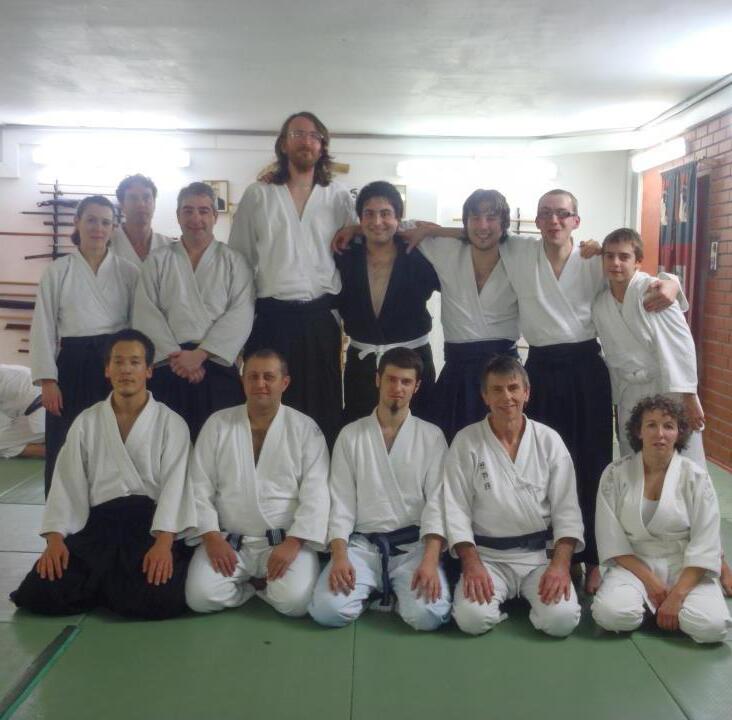


President: Louise Juniper
Twitter: @CharmerCheer
Facebook: Cardiff Snakecharmers
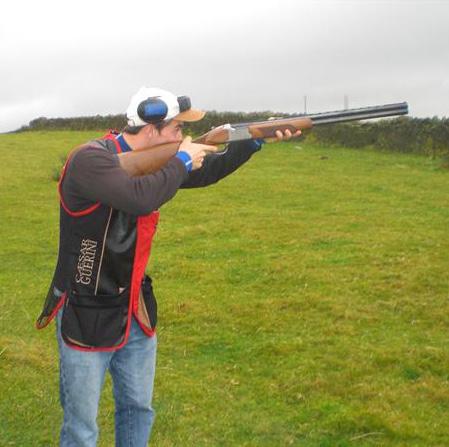
President: Ed Drummond
Email: DrummondE@Cardiff.ac.uk
Facebook: Cardiff University Clay Pigeon Shooting Club
Facebook: The Cardiff University Cobras Teams: Mens Competition: BUCS: Western

President: Yee Wai Lim
Twitter: @CardiffUBadClub Teams: Mens & Womens
Facebook: Cardiff University Badminton Club Competition: BUCS: Premier
Facebook: Cardiff University Boxing Club


President: Alvaro De Armas Elvira (men’s) Holly Short (women’s)
Email: dearmaselviraa@cardiff.ac.uk shorth1@cardiff.ac.uk
Facebook: Cardiff Tigers University Basketball Cardiff Uni Ladies Basketball Teams: Mens & Womens Competition: BUCS

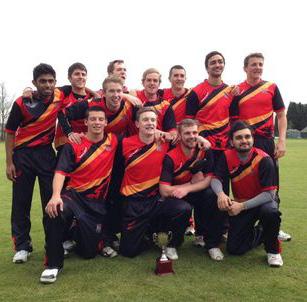
President: Sunil Patel (men’s) Avi Saxena (women’s)
Email: s.patel2992@gmail.com, saxenaa4@cardiff.ac.uk
Facebook: Cardiff University Cricket Club
Twitter: @CardiffUniCC
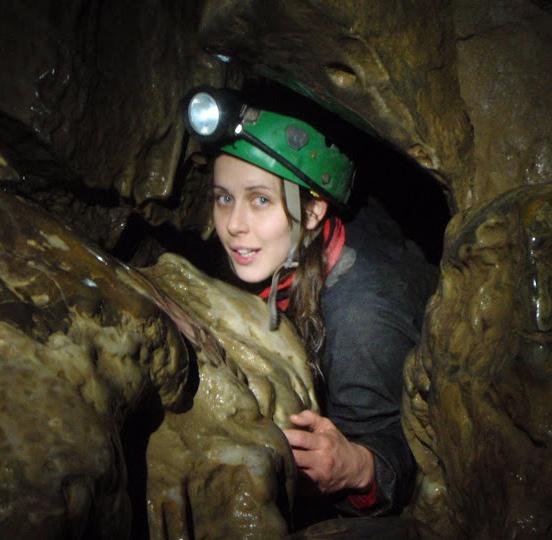
President: Elizabeth de Wit
Email: dewitj@cardiff.ac.uk
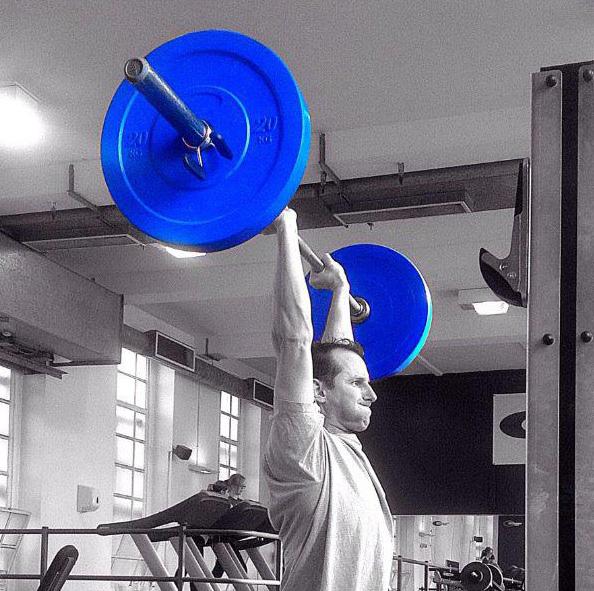
President: Shaun Howell
Email: president@cucf@gmail.com

President: Chris Benyon
President: Bryn Griffiths
Email: griffithsb4@Cardiff.ac.uk
Twitter: CUDanceSport
Facebook: Cardiff University DanceSport Club
President: Rosa Nash
Email: nashre@Cardiff.ac.uk Teams: Mixed
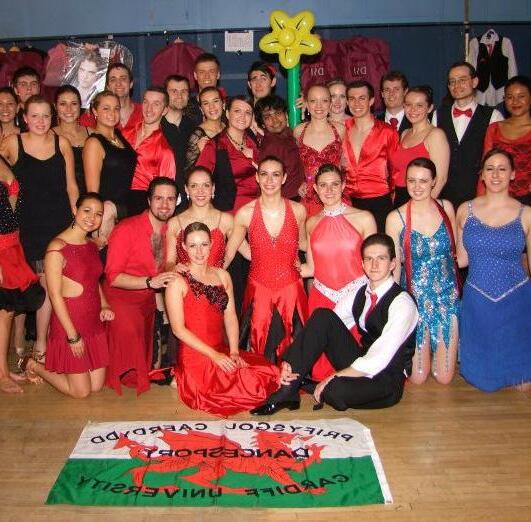

President: Edward Sibert
Email: siberte@Cardiff.ac.uk
Twitter: @CUfencing
Facebook: Cardiff University Fencing Club Teams: Mens & Womens

President: Luke Barrie (Men’s) Amy Chinner (Women’s)
Twitter: @CardiffUniFC Teams: Men’s & Women’s Competition: BUCS
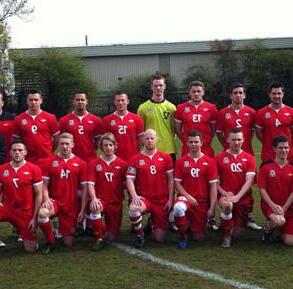
President: Rhys Jones
Email: jonesr98@cardiff.ac.uk Teams: Mixed Competition: BUCS

President: Marian Laird
Email: lairdmc@Cardiff.ac.uk
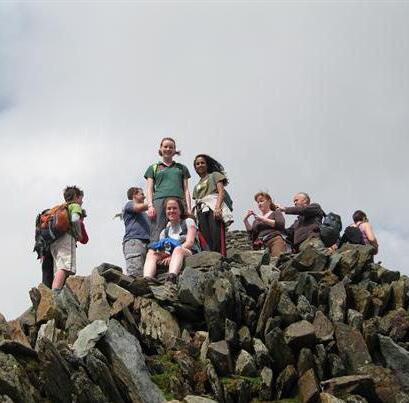
President: James Croft (Men’s) Jessica Oliver (Women’s)
Email: croftjw@Cardiff.ac.uk
Twitter: @CardiffUniHC
Facebook: Cardiff University Hockey Club Teams: Men’s & Womens Competition: BUCS


Email: cardiffuni.icehockey@gmail.com
Facebook: Cardiff Redhawk
Twitter: @CardiffRedhawks
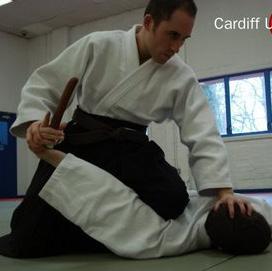
President: Kate Milledge
Email: milledgeke@cardiff.ac.uk

President: Huw Beckett
Email: becketthd@cardiff.ac.uk
Facebook: Cardiff University Kayakers
Twitter: @CUKayakers

Facebook: Cardiff University Kickboxing Club - CUKC
Twitter: @CU_Kickboxing

President: Jonathan Deibel
Email: deibelj@Cardiff.ac.uk
Twitter: CardiffKitesurf
Facebook: Cardiff Uni Kitesurf and Wakeboard Club

President: Roddy Slater
Email: SlaterR1@Cardiff.ac.uk
Twitter: CardifUniKorf

President: Charlene Goh

President: Bradley Cooper
Twitter: @CardiffLacrosse Teams: Mens, Womens & Mixed Competition: BUCS

President: Harry King
Facebook: facebook.com/groups/ CardiffUniMotorsports Competition: British Universities Karting Champtionship
President: Stephen Grigg
Email: griggs@cardiff.ac.uk
Facebook: facebook.com/groups/ CardiffUniversityMountaineeringClub


President: Gabriel Collings
Email: cumtcartel@gmail.com Competition: BUCS
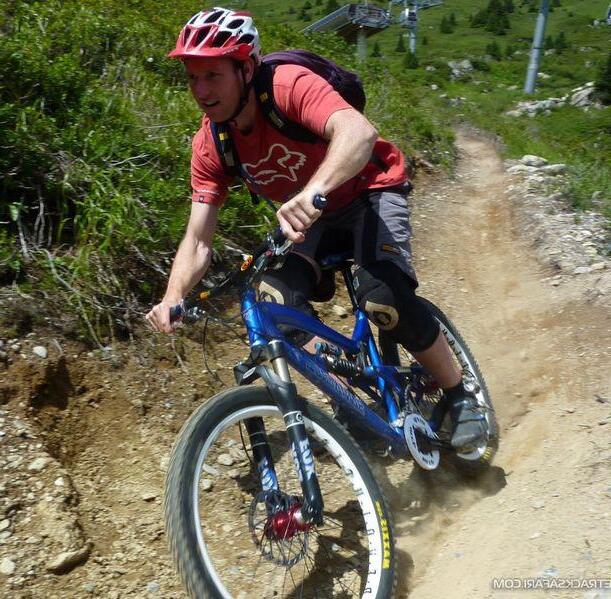
Facebook: facebook.com/Cardiff.Netball Competition: BUCS
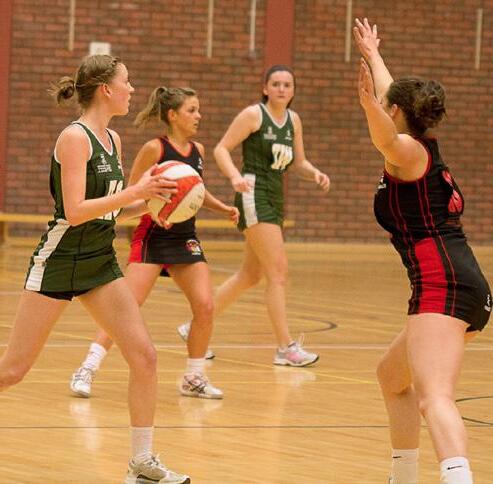
President: Lauren Sweeney
Email: poledancesociety@hotmail.com
Twitter: @CUPoleDanceSoc
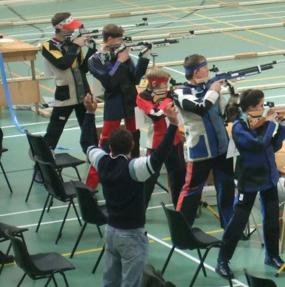
President: Owen Escott-allen
Email: AllenO1@Cardiff.ac.uk
Twitter: @CardiffUniRifle Competition: BUCS
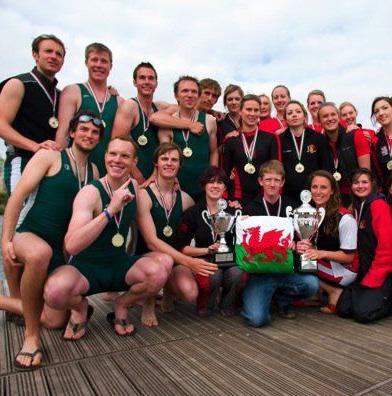
President: Tom Tilston
Email: president@cardiffrowing.com
Teams: 2 Women’s & 2 Men’s

President: Beth Stafford
Email: StaffordBA@cardiff.ac.uk
Facebook: Cardiff University Ladies Rugby Teams: 1 Women’s Competition: Premier South
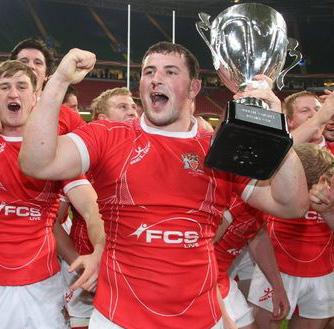
Director of Rugby : Martyn Fowler
Email: FowlerM2@Cardiff.ac.uk
Twitter: @CURFCsince1883 Teams: 5 Men’s Competition: BUCS: Premier South A

President: Emily Wiltshire
Email: WiltshireE@Cardiff.ac.uk
Twitter: @CUSailingClub Teams: 2

President: Ryan Goddard
Email: GoddardR1@Cardiff.ac.uk
Facebook: facebook.com/groups/5890246059
Competition: Cardiff & District Snooker League. BUCS & MUCS
President: Sam Goodenough
Email: goodenoughS@Cardiff.ac.uk
Twitter: @CardiffSnow

President: Tom Loughrant
Email: loughrant@Cardiff.ac.uk Teams: 2 Men’s & 1 Women’s

President: Tristan Thomas
Email: ThomasT14@Cardiff.ac.uk
Facebook: Facebook.com/CUSACDiving

President: Elly Weatherill
Email: Wetherill@Cardiff.ac.uk Teams: Swimming: 2
Waterpolo: 1 Men’s & 1 Women’s Competition: BUCS

President: Carys Spencer
Email: SpencerCe@Cardiff.ac.uk
Facebook: facebook.com/groups/ 30256425673
Competition: BUCS: Premier
President: Eleftherios Williams
Email: WilliamsET1@Cardiff.ac.uk
Facebook: facebook.com/ groups/161471177285025 Teams: 2


President: Ralph Buiser
Email: BuiserRJ@cardiff.ac.uk
Twitter: @CUVolleyball Teams: Women’s & Men’s

President: Jonathan Beer
Email: BeerJD@Cardiff.ac.uk
Twitter: @CardiffUniTKD Competition: Welsh & UK Championships

President: Gary Hawke
Email: HawkeG@Cardiff.ac.uk
Twitter: @CardiffTennis Teams: 2 Women’s & 2 Men’s
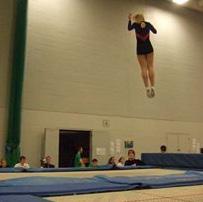
President: Chloe Savident
Email: SavidentC@Cardiff.ac.uk
Facebook: facebook.com/pages/CardiffUniversity-Trampoline-Club
Competition: Annual BUCS Trampolining Championships
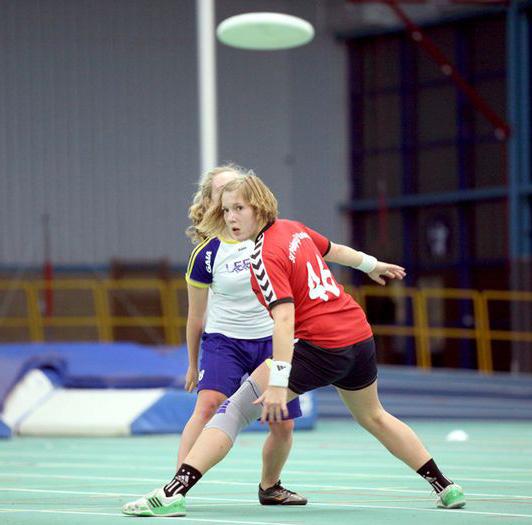
President: Heather Scullion
Email: ScullionH@cardiff.ac.uk
Twitter: @CardifNoFrills Teams: Women’s, Men’s & Mixed Competition: Indoor & Outdoor BUCS Championship

President: Robert Varley
Email: VarlyRJ@cardiff.ac.uk
Facebook: facebook.com/groups/2222428183 Competition: Inividual & Team BUCS Championship

President: Tom Firth
Email: FirthTM@cardiff.ac.uk
Competition: BUCS Windsurfing Championship


YOGA
President: Katherine Strong
Email: StrongKA@cardiff.ac.uk

For the residents of Cardiff, it can often be confusing to work out which government, parliament, or council, are in charge of which aspects of a person’s day to day life, so here is of the Welsh capital.
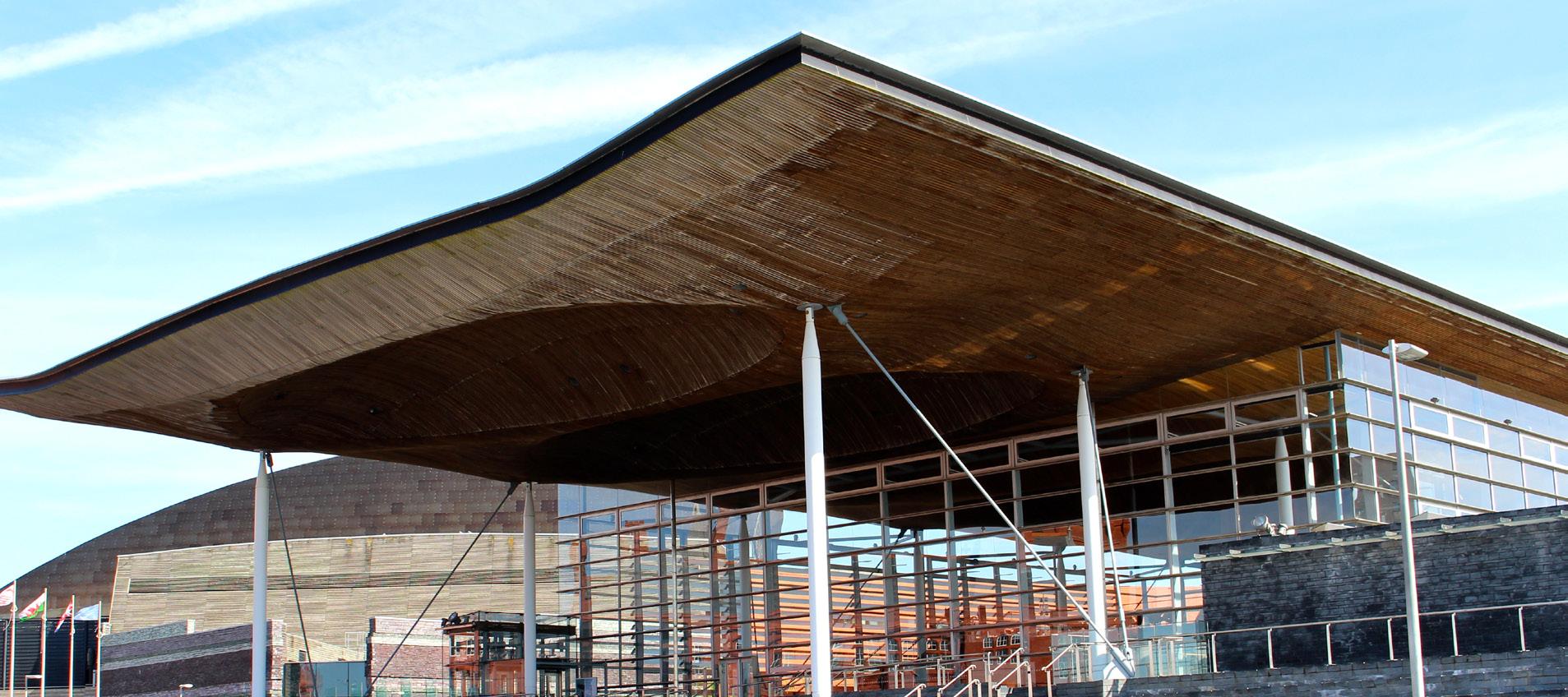
The National Assembly building, situated at the water’s edge in Cardiff Bay is the seat of semi-autonomous power for Wales. The primary purpose of the Welsh

A directly elected body at the European Parliament has been a requirement since 1979 and, since then, it has been the job of this parliament to bring about the changes to policy and looks at new treaties that will affect the members of the economic community. The primary voting system used within the parliament means that the majority of the issues raised and discussed are voted upon, with policy or treaty requiring a ‘qualified majority’ to be passed or dismissed.
It seems that, increasingly, the European Union is subjected to more and more attacks from the tabloid press. The attacks often criticise the European Parliament for taking away the Sovereignty of Westminster. While there is some level of truth in this, as it is the primary in European Power that sets the precedence that must be followed by individual nation states, it will often restrict itself to wider, trans-national issues.
For a proposal to become European law, it must effectively pass through the two chambers of the Parliament, while the whole time being scrutinised by the parliamentary members. The legislative procedure in the European Parliament requires the European Commission, which is the body responsible for the raising of issues and development of policy, to present to the Parliament, the true legislative body, and the Council, which represents the executives of the European Union. It is only once these bodies have agreed on the language and text of the proposal that it can be voted on and passed.
European elections take place every five years, with the next set to take place in the summer of 2014. The British contribution to the second largest elected body in the world is 72 members from 12 constituencies. During the 2009 election, Wales saw the majority of its votes going to a Conservative Party candidate; however, that is predicted to change in the following year. The voting of constituencies forms a similar system to the British style, ensuring that there is a relative amount of understanding from the general public about how this system works.
Government is to control the creation of laws that solely and directly affect the Welsh people, granting a level of independence and self-governance away from the control of Westminster.
The assembly is made up of a First Minister, Carwyn Jones, and his cabinet of 12 ministers, along with 60 members elected from around Wales. The government control an annual budget of £15.285 billion and are in charge of various areas that are specific to Wales, such as food, agriculture, and town planning.
The system of election for the Welsh government is particularly different to others in the hierarchy of government bodies. The Welsh Assembly boasts a mixed member proportional representational system, where there is an additional member system. For this to work, 40 assembly members are elected outright as the representatives for single constituencies, as is the case in the Westminster elections. There are then 20 members elected from a ‘closed list’ using alternative party voting methods. There are five regions from which these members can be admitted into the assembly, with each region gaining an additional four members. The intention behind this, following devolution in 1997, was to make a degree of proportionality apparent across Wales, and address some of the issues raised in the Westminster subsection about the use of constituencies and purely a ‘first past the post’ system.
This is the body which are often only seen to be visible on a Sunday morning, cleaning up the waste of the night before. However this body is also responsible for the development of the City. This ranges from transport links, large-scale infrastructure, housing development and the creation of community centres. While students are exempt from paying Council Tax, which would normally fund such projects, it is apparent how important the student vote is in the local elections. If you live in Cathays or Talybont, you will regularly find yourself waking up to local election propaganda lying on your doormat. This is often because the councillors for Cathays will be relying on the Student Vote to ensure success, as after all, the boundaries for each councillor relatively very small when compared to the constituencies of General Elections.

In the next 12 months, a number of serious and controversial political issues will take centre stage, both at home and abroad. Here are the things that you can expect to dominate the world of politics in the upcoming year. We will be covering all these fascinating topics, as well as many more, in the coming weeks and months.
Greg LandonThe conflict in Syria has been the hot issue in world politics for over two years, and isn’t fading from public view. Bashar al-Asaad shows no signs of stepping down, and with the widely reported use of chemical weapons, the conflict only seems to be intensifying. Tens of thousands of deaths and hundreds of thousands of refugees is the toll the war has taken, and one wonders how much longer governments around the world will wait before taking more serious action.
It’s no secret that the European Union has endured a very tough last couple of years, and anti-EU sentiment seems to be becoming stronger and stronger throughout the continent. In May of next year, all member states will go to the polls to decide who will represent them in the European Parliament, and it is widely predicted that those elections will reflect these feelings of unhappiness. Jobbik in Hungary, Lega Nord in Italy, and UKIP in Britain are just some of the right-wing and nationalist parties that are tipped to perform well in the vote. Europe, or at least the EU, faces a crucial 12 months that could shape its future.
The next 12 months could be vital in deciding how political whistleblowers are treated. The likes of Julian Assange, Bradley Manning and Edward Snowden have come under intense scrutiny, and it is expected that various governments will continue to aggressively pursue charges against them. However, with public awareness and support for such figures rising by the day, there is a possibility that concessions might be made.
The referendum for Scottish Independence is scheduled for almost exactly a year from now. Whatever the result, it will be a historic event for UK politics, and will be a very well covered issue over the coming months. As mentioned, feelings of independence and nationalism are increasingly common in Europe, and Scotland could be one of the first of many regions and countries all over the continent that votes on how it wishes to be defined.
North Korea is never out of the political spotlight for long. Recently there has been the usual mix of events that look promising for peace, those that will hurt the peace process, and those that appear downright mad. So many questions remain. How strong is their relationship with China? How advanced are their weapons systems? Are they simply showing off militarily in the hopes of forcing a new peace treaty? While this year probably won’t provide that many conclusive answers, the headlines will continue to flow.

The government at Westminster are by far the most influential elected body in the United Kingdom. It is responsible for driving the economy with investments and the encouraging of business to settle here, along with being responsible for the smooth running of the National Health Service, controlling where troops are stationed and bringing about civil liberty policies, such as gay mar-
riage proposals.
While the European Parliament is deemed to have political primacy, it does not hugely detract from the British Government’s ability to make independent decisions regarding home and foreign policy. For example, the high levels of government cuts, and the implementation of austerity measures, which have been enacted since 2010, have been purely based on
the Conservative-led coalition government, pushing through a budget that requires aggressive cuts. The passing of legislation in the British system is not all dissimilar from that of the European Union. Once an issue is raised and carried, it is reviewed and a draft of the law can be voted upon. The House of Commons, the elected body, will vote first, before being passed to the House of Lords,
which is an unelected body of peers. This system requires Members of Parliament to have been voted in by members of their home constituency. It is a format of government that has often been criticised for being inefficient at dealing with appropriate representation for particular parties. Due to the first-past-the-post nature of the political system, it means that the
government that holds a ‘majority’ does not need 50% of the vote. Labour under Tony Blair in 2005 was the last majority government and they won comfortably with a share of just 40.7%. Another example of this flaw was that of UKIP, who took 3.1% of the votes in 2010 but did not secure any seats, while Plaid Cymru won three seats with just 0.6% of votes.

 Grace Cole Societies Editor
Grace Cole Societies Editor
Hi! My name is Grace Cole and I will be editing the Societies section of the gair rhydd this year.
To all the 2013/14 Freshers, this is the section in the newspaper to come to find out what is going on with societies at Cardiff University.
Societies are a great way to get fully involved in university life, meet new people with the same interests as you and try something you may never have tried before.
At Cardiff there are over 160 societies, which include course-based societies and activity based societies. The course-based societies allow you and your course mates to get together on a regular basis and socialise outside of the lecture
hall, which sometimes is all you need after a busy week! The activity based societies allow you to try something new, like dance or cookery, or continue a hobby which you started in your home town, like act and sing!
I am a member of 2 societies; the Earth Society - so I can meet up with people on my course (Marine Geography) and we can blow off steam together. I am also a mem-
Getting involved with societies at Cardiff is really quite easy. You can join any society by following these three simple steps…
1
2
Venture down to the Great Hall in the Student’s Union on the 26th and 27th September to take a look at the Societies Fayre Sponsored by EY. Browse all the stalls and have a chat with the committees. With over 160 stalls over the two days, there is bound to be something to take your fancy! REMEMBER, there are different stalls on each day, so make sure you get down there on both the 26th and 27th from 10am – 5pm to properly explore your opportunities.
Found something you want to get involved in? Pick up a Guild of Societies form from the lovely committee from the society you wish to join, fill in your details so the committee can contact you, and then head to the checkouts.
3
Pay. Yes, you have to pay, however, the Guild of Societies Joining fee is only £4, and this will allow you to join as many societies as you like throughout the year. The fee allows societies to invest in events that will go on during your time at Cardiff. The society joining fee goes towards the society you’ve joined and helps fund equipment which may be needed for activities, socials or even help trips abroad. So it really is worth the money!
ber of Act One, which has been a great way for me to carry on drama in a relaxed and inclusive environment. Both societies have been a great way to meet new people at university and have provided me with some unforgettable experiences.
So take your time on the 26th and 27th September to explore the Societies Fayre in the Great Hall in the Union, where you can chat to

the students who run the societies here at Cardiff and see which society, if any at all, will be the most exciting for you to join.
I hope you have a fantastic first year and hopefully being part of a society will make your university experience even more phenomenal!
Hey! I’m Elliot, your Vice President Societies & Campaigns. As part of my job, I champion societies, campaigns and student-led activity within the Union, University and local community.
If you’re new to Cardiff, congratulations on your results, you’re going to have the time of your life here! For those of you returning, welcome back! I hope you had a great summer.
Societies play a massive part in student life here at Cardiff. In fact, we have about 6,000 individuals who are members of some of our 160 societies. For those of you who don’t know what a society is, it’s a group run by students for students. They are often focussed around a hobby, interest or culture and range from course-based societies to performance groups.
As the title suggests, I also oversee any campaigns run in our Students’ Union. A campaign is simply a message that you want to spread across campus about something you’re passionate about. It could be anything from whether you think Cardiff should be part of NUS to reducing student litter in Cathays. If you want to get your voice heard, please get in touch! This section of the gair rhydd will feature all things societies every week, edited by our lovely Grace Cole. Make sure you check it out to see what you can get involved with. If you’re a committee member, get in touch with Grace at societies@gairrhydd.com and she can help you promote your event.
Then that’s it! You will officially be a Cardiff University society member for 2013/14.
If you can’t make it down to the fayre for those 2 days, do not fear! You are able to join any society throughout the academic year at cardiffstudents.com A note from your
Student ID
You will have to fill in your student number on the Guild of Societies form
This year our societies fayre is sponsored by EY. Find stall and have a chat with the people who have had the opportunity of working for them and see how they can help you in the future.
You will need to take some money for any payments Money
Crowds
Dont like big crowds? Get to the fayres for the first and last hours - there’ll be less people!
The fayres are on between 10am and 5pm on the 26th & 27th of September Times
Joining a society has a whole host of benefits. Not only are you spending time with people who have a similar interest to you, you’re also expanding your friendship groups and developing skills you may not get a chance to whilst studying. You may even get a chance to sit on a society committee and change how things are run.
So if you’re keen to get involved, log on to cardiffstudents. com/activities/societies and see if there’s anything that takes your fancy! On Thursday 26th and Friday 27th September, we have the Societies Fayre sponsored by EY in the Great Hall. Half of our societies will be there on one day and the rest on the other. This is your chance to speak to the committee members and decide the society that is for you. You can also sign up on the day.
That’s it from me for now. If you want to get in touch, please pop in and see the team in our swanky new offices on the 3rd floor of the Students’ Union or send me an email at VPSocieties@Cardiff.ac.uk.
Enjoy Freshers!
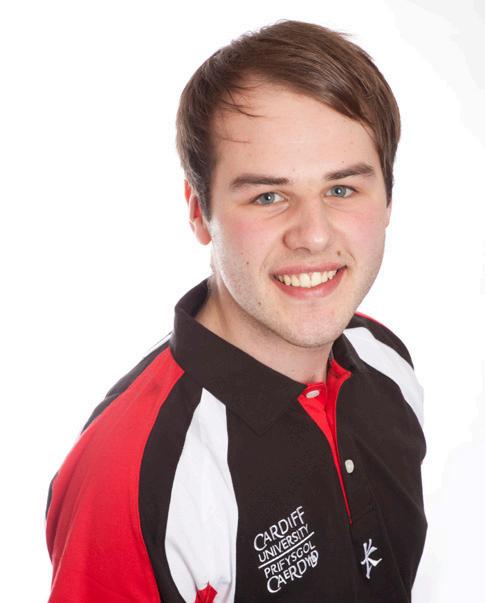 Elliot Howells VP Societies
Elliot Howells VP Societies
Throughout the academic year at Cardiff University, there will be lots of events each society will hold individually. However, there are
also some big occasions where all the societies at Cardiff will come together and put on some great events.
Students at Cardiff are able to join new societies or rejoin societies they love so much. This year the societies fayre promises to be bigger and better than ever before. It will be held in the Great Hall. within the Students’ Union on the 26th and 27th of September between 10am and 5pm. You can read about how to get involved on the left hand page.
For Cardiff societies this is the biggest event of the year! It allows all the societies to come together to perform and show the students of Cardiff what their society is all about. Food from different societies is provided and a great show is put on and all students are given the opportunity to attend.



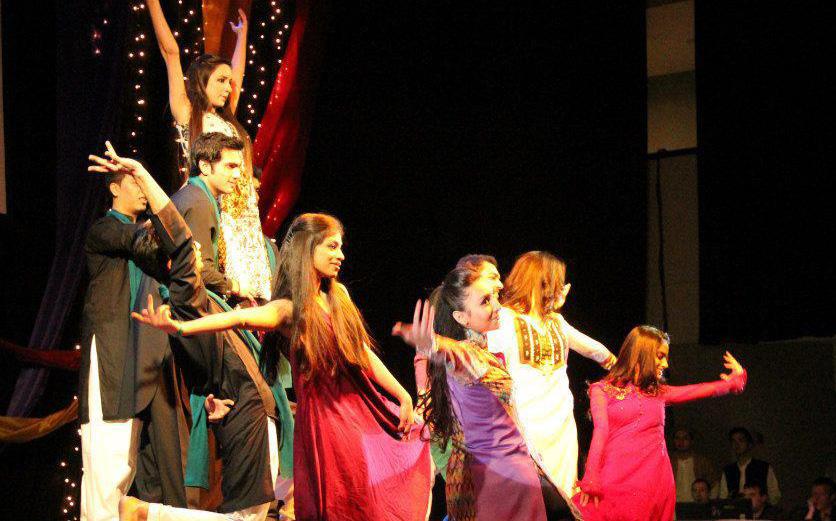



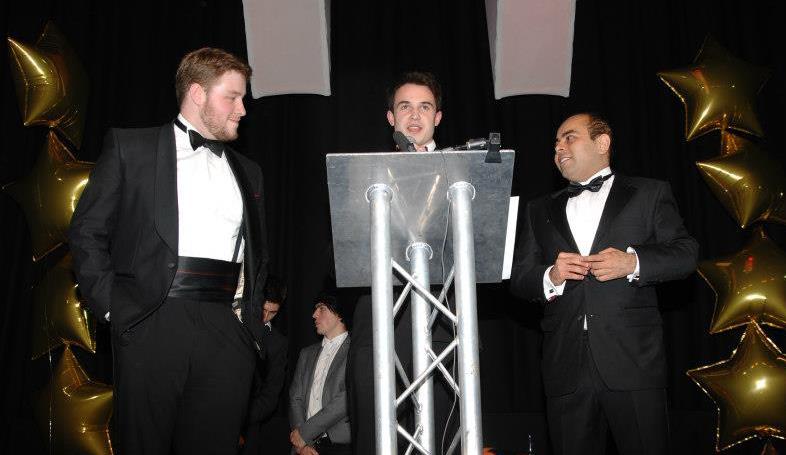


RAG (Raise And Give) is a society within itself, however RAG week is where all the societies pull together to help raise money for charity by small events over the course of the week. This includes ‘LOST’; a hitch-hiking challenge home from an mystery location without money, a ‘Take Me Out’ event and‘Student v Food’.
The Ball allows societies at Cardiff to come together for one final time to celebrate their achievements. Awards are given each year to help recognize some of the most improved and committed societies.
 Jess McFarlane Societies Writer
Jess McFarlane Societies Writer
Hi. My name is Jess and I have an idea. There will always be ideas. Some good, some bad, some brilliant. Ideas whose time has come, and then ideas which should have been abandoned in the madly written scribbles of your notebook.
This is an idea. The idea of trying new things that I’ve always wanted to do, or never thought I’d consider. Things I’ve always wanted to learn, and things that make me laugh.
Why you may ask? Well, why not? Ways I can be Awesome is not a column about being the best, it’s a column about having fun, giving it a go, and knowing I can do any-
thing (hopefully).
Being awesome may not be achievable, but I don’t think that it is an impossibility. As with many things in life, there is only one way to find out.
“So Jess”, I hear you ask, “How does Ways I can be Awesome work?”
Well, I will be writing about something that I’ve learnt, done, or enjoyed every week. I will do things you might already be able to do, or maybe not. I’ve decided I should probably do 101 things, as it sounded to me like the right number.
So far, I’ve blogged about attending a life drawing class, a Viking re-enactment, and playing the ukulele. You’ll get to see me continue my journey right here.
“So why create Ways I can be Awesome?” you reply.
Because even before I had moved to Wales, I thought it would be a great idea to learn how to rap with welsh hip-hop group Goldie Lookin Chain. Of course, becoming the fourth member of Destiny’s Child could be an alternative option.
One of the most awesome things I have learnt so far is that life is not about the big decisions, it’s about the little victories, the little experiences, and the little joys.
So welcome to Ways I can be Awesome . This is the start of my idea.
I learnt how to skateboard. My friend Will taught me. My friend Adam filmed it. My friend

took some photographs. My friends at Dog & Fire did some epic post-production. I wore the most amazing girly helmet. The result? A lot of pain. I also hurt everywhere for quite a few days afterwards. However, I discovered that going down a skate ramp isn’t as scary as I thought - as long as you don’t grab small children
on your way down you should be alright. I’m also yet to master how to ‘shove it’ and ‘drop in’.



If you’re looking for a place where brilliantly goofy, intelligent, informed people come together, Cardiff Student Media is something you should go for. It’s really fun, but that doesn’t mean our quality is compromised; our Student Media’s past awards are testament enough to how professional the content we produce has come to be. Becoming involved with Student Media equips you with skills that will be extremely valuable for a wide range of occupations. You’ll also forge connections with many talented students who go on to do great things
– a
category that could potentially include you. There are less international students involved than home students, but that’s not because the social environment isn’t welcoming – far from it! I think it’s more because the international student body are a little wary of the fact that they may come from a less well-known culture, but what better place to try and change this than from within Student Media?
MICHAEL O’CONNELL DAVIDSON
Student media allowed me the opportunity to both expand on my practical skills and also make some of the best friends I’ve ever known. It’s a really great place to get to know people, the same extent as sending a newspaper to print as a team. It’s often said that a degree is not enough, so student media allows you opportunities that would take years to arise in a professional context.
to write multiple front page stories of an award winning newspaper, talk at length about my passions on radio, and interview my idols in print and on video. It not only looks great on your CV, but it’s really satisfying on an individual level. I would encourage anybody who wants to meet motivated people and share their interests to get involved – Cardiff Student Media has been invaluable to my university experience, and I’ve only been here a year!
Getting involved in Cardiff Student Media was the best decision I’ve made since coming to Cardiff. When you’re inevitably looking for distractions from your degree, student media has it all. It can be a
see your name written in gair rhydd or Quench next to an article you’ve spent hours working on, or see that people are enjoying a video you’ve helped create – it’s totally worth it.
During my time with CUTV
I’ve had opportunities to do things I never thought would be possible. I’ve gotten to interview some of my favourite international rugby teams like the All Blacks and go to a
whole load of events as press. It’s part of CUTV you learn how to use professional camera equipment and editing software whilst working alongside your new best friends. There is something for everyone from print to radio to video. I don’t
Varsity and having our highlights video shown in the Millennium Stadium has made it one of my favourite days of the year. If you’re after some good socials too, you’ve found the right place. See you in The Taf.




The

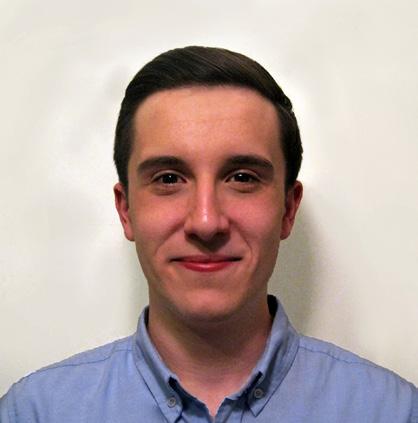
Swyddog Myfyrwyr Cymraeg
Helo! Os y’ch chi’n las-fyfyriwr –croeso! Os y’ch chi eisoes yn fyfyriwr, croeso’n ôl!
I chi, las-fyfyrwyr, mae’n bleser arbennig imi eich croesawu chi i Brifysgol Caerdydd, a’ch llongyfarch chi ar ennill eich
ymgartrefu yma yn fuan iawn, yn
yn ôl pan imi symud yma am y tro cyntaf. Yr het honno yw fy swydd newydd fel Swyddog Myfyrwyr Cymraeg Undeb y Myfyrwyr. Am
wedi ysgrifennu erthygl yn Taf-Od bob pythefnos am wleidyddiaeth
Cymru ac mae’n siwr y parhaf i ysgrifennu yma am hynny, ond rwyf hefyd nawr yn un o ddau gyd-olygyddion Taf-Od felly fe welwch chi fy enw i ar y dudalen hon yn aml, heb os, ond y tro hwn, rwy’n ysgrifennu tra’n gwisgo het wahanol. Yr het honno yw fy swydd newydd fel Swyddog Myfyrwyr Cymraeg Undeb y Myfyrwyr.
Yn syml iawn, rwy’n gweld bod dwy swyddogaeth i’m rôl: cynrychioli buddiannau holl fyfyrwyr Prifysgol Caerdydd sy’n hanu o Gymru, a chynrychioli buddiannau’r Gymraeg, a’i holl siaradwyr a dysgwyr sy’n fyfyrwyr
yma. Fy mwriad yw defnyddio’rdeb y Myfyrwyr a’r Brifysgol fel endid ehangach i sicrhau fod ym Mhrifysgol Caerdydd a’r Undeb
Gymraeg. Nid y ddarpariaeth docenistaidd y mae’r Cymry Cymraeg wedi arferu ag hi gan nifer o drefniadaethau eraill, ond sefyllfa ble mae modd i unrhyw fyfyriwr sy’n dymuno gwneud, dderbyn unrhyw un o wasanaethau’r Undeb neu’r Brifysgol trwy gyfrwng y Gymraeg.
Fel Cymro Cymraeg, rwy’n gwybod yn iawn mai job o waith o hanner fydd sicrhau’r ddarpariaeth hon, ac ry’n ni i gyd yn gwybod, mae’n
yw y byddaf yn gwneud fy ngorau. Byddaf yn codi fy llais tros eich hawliau chi – hawliau sydd, am wn i, yn rhai statudol. Siarad am statud – byddaf yn Comisiynydd y Gymraeg, yn ei swyddfeydd yma yng Nghaerdydd. Byddaf yn ceisio gael gwybod gan y Comisiynydd beth yw dyletswyddau Undebau Myfyrwyr o ran y Gymraeg, fel cyrff sy’n derbyn arian cyhoeddus trwy eu prifysgolion. Rwy’n gobeithio y bydd
arweiniad y Comisiynydd yn gefn ac o gymorth imi wrth imi godi pwysau ar yr Undeb – ac ar y Brifysgol – i roi darpariaeth lawn inni. Mae gen i syniadau a mawr obeithiaf y byddaf yn gallu gwireddu rhai, os nid pob un, ohonynt. Rwy’n meddwl am wasanaeth
siynol. Rwy’n meddwl am dynnu’r rhanddeiliaid allweddol oll o ran y Gymraeg yma yn y Brifysgol at ei gilydd i drafod y ddarpariaeth sydd ar gael yma, a sut gellid gwella’r ddarpariaeth honno. Mae Undebau Myfyrwyr eraill yng Nghymru’n gweithio trwy gyfrwng y Gymraeg a’r Saesneg felly rwy’n gobeithiodeb ni i sicrhau ein bod ni hefyd yn trin y Gymraeg a’r Saesneg yn hafal. Wedi’r cyfan, Prifysgol Caerdydd yw prif brifysgol prifddinas Cymru!
Gymraeg, rwyf hefyd yn rhan o’r tîm o 14 o bobl sy’n gyfrifol am redeg yr Undeb. Y swyddogion llawnamser – y sabbs – sy’n rhedeg y lle o-ddydd-i-ddydd ond mae’r swyddoohonynt, hefyd yn aelodau o’r Tîm Gweithredol. Fel eich cynrychiolydd chi, rwy’n addo gwneud fy
ngorau trosoch chi fel aelod o’r tîm hwnnw. Rwy’n aelod o’r Weinyddiaeth Newid hefyd, sef Cyngor y Myfyrwyr dan enw arall. Rwy’n syniadau i’r Weinyddiaeth; os oes gennych chi syniad am sut gellid gwella Undeb Myfyrwyr Prifysgol Caerdydd, yna rhowch wybod am y syniad hwnnw!
Rwy’n edrych ymlaen yn fawr fy mlwyddyn olaf fel myfyriwr israddedig ym Mhrifysgol Caerdydd
Mae llawer o waith o’m blaen i, ac o’ch blaenau chi i gyd, nid yn unig o ran ein graddau, ond o ran yr hyn
o ran y Gymraeg. Rwy’n barod am yr her! Ydych chi?
Unwaith eto, croeso cynnes iawn ichi i Gaerdydd, neu groeso’n ôl os fuoch chi yma yn eisoes. Rwy’n gyfewch i fwynhau!

unrhyw adeg ar: Facebook /SwyddogCymraeg Twitter @SwyddogCymraeg E Gair Golygyddol
Yn gyntaf gobeithio i chi oll gael haf prysur a hwylus ac eich bod chi bellach yn barod i wynebu blwyddyn arall yma yn y brifddinas!
Croeso mawr i’r rheiny ohonoch sy’n camu fod Taf-od yn adran Gymraeg ym mhapur y Gair Rhydd. Os am gopi wythnosol am ddim, ewch i’r Undeb, un o amryw lyfrgeleich canolfan addysgol i fynnu copi. Oni bai am gyfranwyr Taf-od, mae’n debyg na fyddai gan y Brifysgol nac yn bwysicach; myfyrwyr Cymraeg ein prifddinas y siawns i fwynhau erthyglau diddorol a chyfoes trwy gyfrwng eu mamiaith. Beth am fynnu llais i’ch iaith fel myfyrwyr sy’n siarad Cymraeg
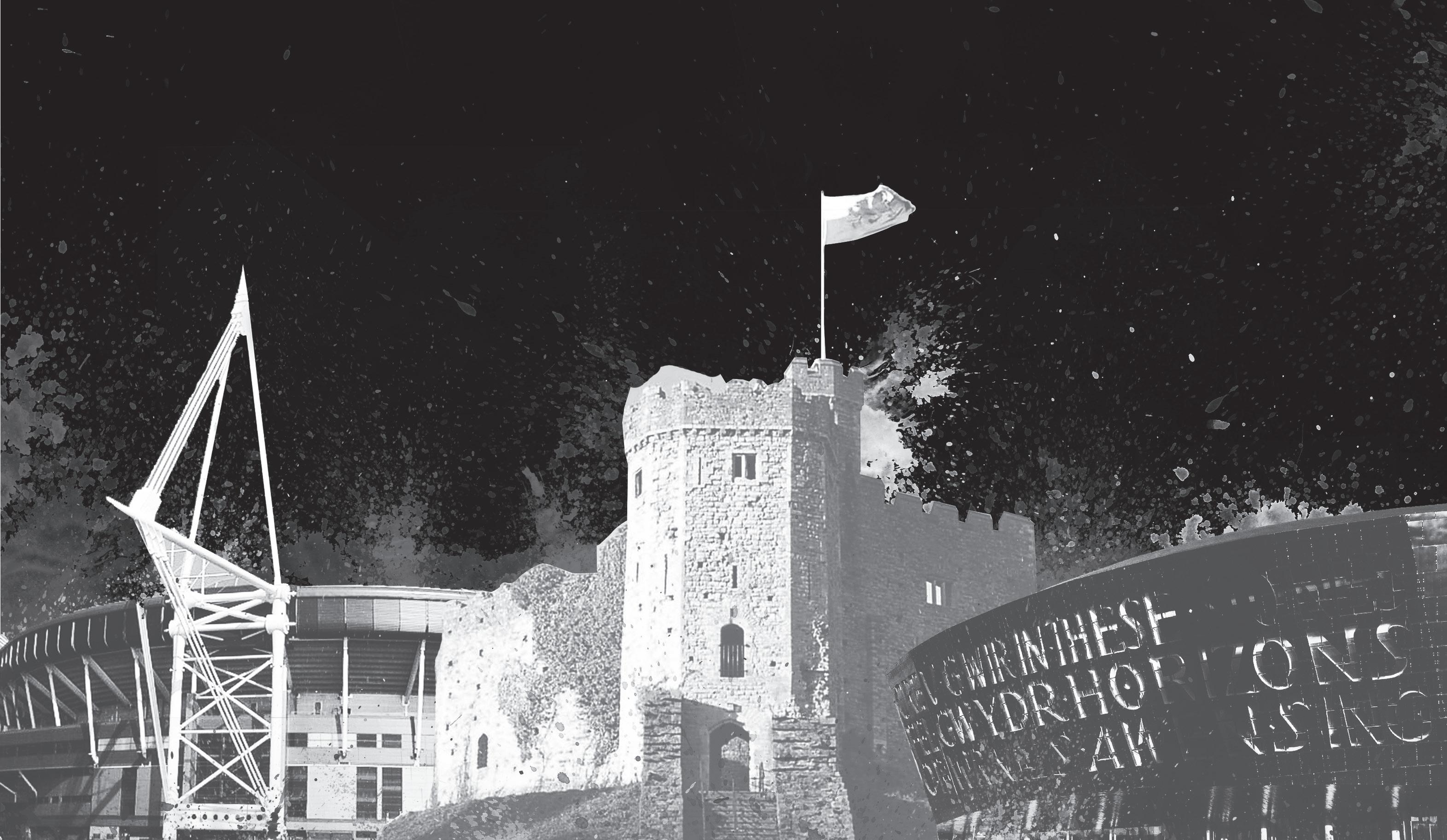
a chyfrannu erthyglau i Taf-od am unrhyw bwnc o’ch dewis? Boed yn adolygiad o
amgylcheddol neu’n sylwebaeth ar unrhyw gamp o’r maes chwarae; mae Taf-od wastad yn derbyn yr her i fod yn adran amrywiol newydd. Peidiwch a bod yn swil! Gyrrwch gyfrannu erthyglau mewn maes o’ch dewis. Gwnewch Taf-od yn adran Gymraeg sy’n cynnig darpariaeth at ddant pawb! Cysylltwch!
Cerith Rhys Jones, Anna George
Dros yr haf, llwyfannodd Theatr Genedlaethol Cymru gynhyrchiad o ddrama glasurol Saunders Lewis; Blodeuwedd. Gwnaethwyd hynny mewn lleoliad godidog a llwyr berthnasol i’r chwedl wreiddiol sef ar diroedd bryniog castell Blodeuwedd a Lleu Llaw Gyffes; Tomen y Mur, Trawsfynydd.
Nid oeddwn erioed wedi gweld drama llwyfan agored o’r blaen, ac cynhyrchiad o’r fath profais brobendant yn aros yn y cof. Y man
atomfa niwclear Trawsfynydd, casglu’r clustffonau a chael ein hebrwng wedyn i fysus a gludodd y gynulleidfa i Domen y Mur. Cywrth i ddechrau pedwaredd gainc y Mabinogi gael ei hadrodd trwy’r clustffonau yn ystod y daith i’r nhocyn oedd i “wisgo’n addas ar gyfer tir anwastad”. Er i mi amau beth i’w ddisgwyl, cafwyd cynhyr-surol wrth i ni gael ein hebrwng chwedl wreiddiol yn parhau i gael ei hadrodd yn ein clustiau yn unol Glynwyd at ddrama wreiddiol

Saunders Lewis o ran sgript, a rwy’n hollol falch fod y theatr wedi gwneud hynny. Dywed Saunders Lewis yn ei ragymadrodd i’r ddrama; “barddoniaeth sgwrs yw barddoniaeth drama” a phrofais y wefr hwnnw a swyn ei frawddegau’n llwyr yn y cynhyrchiad yma. Mae’r actorion i’w diolch am eu mynegiant clir a’u dehongliadau treiddgar a gwreiddiol eu hunain o gymeriadau astrus y chwedl. Seren y sioe yn fy nhyb i oedd y chwaraeodd ran Blodeuwedd; y fod cymeriad aml-haenog Blodeuwedd, ei thristwch, ei harddwch a’i chymeriad oeraidd yn her gyffrous i unrhyw actores ifanc. Nid wyf Saunders Lewis ynteu’r actores ond yn sicr llwyddodd y ddrama a pherfformiad Morfydd ei hun i
thristwch ei bod hi’n ddieithr i fyd bod dynol ac yn dyheu am ddychwelyd i’w byd hi; byd natur. Dylid canmol yr actor Glyn Pritchard a -
wyno dos o hiwmor i bersonoliaeth y dewin amryddawn. Caboledig hefyd oedd Iddon Jones a chwaraeodd ran Llew Llaw Gyffes am berfformiad credadwy a theimladwy.
cynhyrchiad y Theatr Genedlaethol o ddrama Saunders Lewis.
redoedd drygionus y cymeriadau a wna chwedl Blodeuwedd. I mi, cwestiynu moesoldeb bodau dynol yw bwriad Saunders Lewis yn ei ddrama. Cwestiynu a herio wnaeth cynhyrchiad y theatr hefyd a hynny’n ddifyr a gwreiddiol. Yr oedd presenoldeb Atomfa Niwclear Trawsfynydd yn holl bresennol yn y man ymgynnull ac yn weledol o Domen y Mur. Eironig a dweud y
lleiaf. Wrth gwrs, mae posib gor ddehongli pethau ond ni allwn pei-
Atomfa ei hun yn drosiad modern o Flodeuwedd. Yr oedd creadigaeth
groes i drefn natur, yn ferch allan
Trawsfynydd? Yn sicr, mae’n bwnc dadleuol. Diddorol hefyd oedd dewis y cyfarwyddwr Arwel Gruffydd o gyfnod y ddrama. Cawsom awgrym o gyfnod yr ail ryfel byd drwy’r milwyr a yrrai eu cerbydau rhyfel, beic modur a’r dryll yn lle gwayw a ddefnyddiodd Gronw Pebr i ladd Llew Llaw Gyffes. Nid wyf yn sicr at ba pwrpas y dewiswyd y cyfnod hwn heblaw am roi tro modern i’r cynhyrchiad, ond yn sicr drwy newid cyfnod awgrymir fod
drama Blodeuwedd yn oesol, ac nid oes gwadu hynny.
ar Domen y Mur, gwnaethwydwyd diddordeb y gynulleidfa gyda adroddiad y chwedl drwy glustffonau, symud o gadeiriau plastig i eistedd ar seddi gwellt a llwyddwyd i greu darlun byw iawn o’r chwedl wreiddiol wrth i ochr afon hyd yn oed gael ei ddefnyddio yn ystod ymgais Gronw Pebr i ladd Llew Llaw Gyffes. Yr uchafbwynt i mi oedd clywed sgrech truenus Blodeuwedd yn y diwedd wrth iddi gael ei throi’n dylluan gan Gwydion. Wrth iddi ddisgyn lawr ochr y bryn, coeliwch neu beidio – ond ymddangosodd tylluan wen fyw yn
canmol a diolch y Theatr Genedlaethol am gynhyrchiad caboledig ac uchelgeisiol. Diolch i’r holl bobl oedd yn rhan o’r cynhyrchiad a diolch hefyd i’r cawr hwnnw; Saunders Lewis. Cefais fy swyno.
For four of the city’s rugby stars, the summer of 2013 will never be forgotten. Sam Warburton, Leighcent Cardiff University graduate Jamie Roberts were all part of the victorious British & Irish Lions squad that will go down in history following their 2-1 series victory against Australia.
rejoin the Blues from Toulon for the new season, also selected forry, the club were well represented in Australia by a selection of their Warburton, this crop of Lions be-
penny, after being named player of the tournament in Wales’ winning 6 Nations campaign, capped a stand out year by being named man of the series after a string of accomplished performances.

in the second test that would have secured the series victory with a match to spare, but the Gorseinonduce a man-of-the-match display
24 year-old, who has been with the and 3 conversations totalling over half of the Lions points.
ent force in the test side and his relentless accuracy with the boot points scored by a Lions player not only in a single match, but also in a series. The boot wasn’t where his contribution ended either; setGeorge North with incisive runs
two tests in favour of the Irishman, bagged a personal achievement in
share the title of top-try-scorer on tour with his Wales teammate George North.
ties on a global scale once more,
of their prize assets and are hoping to negotiate new contracts for bothing seen Jamie Roberts move on to start a new chapter of his career with Parisian club Racing Metro, itnancial superpowers in the French Top 14.
Former Wales back row Gareth Delve admits that the recent success of Welsh football clubs in the English league system will affect the country’s regional rugby franchises, but dismissed fears that rugby’s place as the nation’s dominant sport is under threat.
Cardiff City were promoted to the Premier League for the first time at the end of last season, following in the footsteps of bitter rivals Swansea City, who are enjoying their third consecutive campaign in the top flight.
Newport County triumphed in an all-Welsh Conference playoff final against Wrexham at Wembley to return to the Football League after 25 years in non-league exile.
Another ex-Wales rugby inter-
national, Mike Hall, recently predicted difficulties for the sport in retaining its audience, citing the stretched state of the economy in South Wales and the well-documented departures of top players such as Jamie Roberts, George North and Mike Phillips to France and England.
But Cardiff-born Delve, who revealed that his first sporting ambition was to don the colours of Liverpool, insists that rugby’s situation is not as grave as some would suggest.
“I think that, with rugby having been the number-one sport in Wales for so long, to finally have two teams in the Premiership is an enormous boost for football,” the 30-year-old told gair rhydd.
“Will it affect rugby being the number-one sport? I think it’s so ingrained into the Welsh personality and culture that I don’t think
‘‘ To finally have two teams in the Premiership is an enormous boost for football
the diehards will move on to football.
“The big danger is the floating fan, who will probably turn their attention towards watching Cardiff or Swansea as opposed to get-

ting down to the regional rugby.
“I certainly don’t think it will be the death knell of the sport, but it will be the floating fans that make the decision with their feet.”
With the Bluebirds and the Swans now competing regularly with some of the most prestigious clubs in world football and regional rugby attendances struggling amid a perceived poor-quality product in the RaboDirect PRO12 league, some have proposed to disband the franchises and return to traditional club sides to ensure ongoing interest in rugby and fan identification with teams.
But Delve, who moved to Japan last month after his Melbourne Rebels contract expired, believes that such action would prove counterproductive.
“I think part of the reason it went towards regional rugby is that they didn’t think it was sustainable having the nine teams,” he explained.
“It’s a shame that we’ve lost that presence in some real rugby strongholds like Pontypridd and Bridgend, whose supporters have been pushed towards supporting teams that have got a bigger influence from their rivals than their own teams.
“For a lot of these supporters, it’s so ingrained in them that they won’t head down and watch the Blues or the Dragons. I think the Ospreys have done it well - they’ve amalgamated Neath and Swansea and there seems to be a fair divide there.
“But I think that, in the long run, in terms of having the players and cash to make these teams competitive in Heineken Cup rugby, to take that step backwards towards the nine clubs wouldn’t be the right answer as there’s just not the money or the player base for it.”
 Liam McNeilly Sport Editor
Liam McNeilly Sport Editor
For the first time in Cardiff’s history, the city will play host to Premier League football in the forthcoming season. With the lure of one of the best leagues in the world on our doorstep, we’re sure that many students will happily adopt Cardiff City as their second club, so here’s a quick guide to Cardiff City.
Cardiff return to the top flight of English football for the first time in 51 years after they were relegated from the old first division in the 1961-62 competition. That season, Ipswich Town just edged out Burnley to claim the league title and City were relegated alongside Chelsea. Since then, the club have been through some particularly rough spells, none more so than the back to back relegations of 1985 and 1986 which saw Cardiff slump in to the fourth division alongside bitter rivals, Swansea City. It was at this time that a young Craig Bellamy was watching Cardiff City play at a run down Ninian Park. His recent autobiography documents how difficult it would have been to imagine the change in fortunes that has seen the club transform the way it has.
Division 3 promotion followed by successive play-off campaigns resulted in a return to the Division 1 in 2003 and investment gave the club a new lease of life.

The message is clear; Cardiff Blues can challenge for silverware this year.
New recruit Matthew Rees expects more from the region as his side looks to build on the achievements of their Lions contingent Alex Cuthbert, Leigh Halfpenny and Sam Warburton in Australia
this summer.
Last season was disappointing; the Blues won only eight out of 22 league games, finishing a dismal ninth. But despite the departures of former defence coach Xavier Rush, star man Jamie Roberts along with Ceri Sweeney, Jason Tovey and Tom James, confidence is high and a place in the play-offs come May is by no means unrealistic.
Eight Blues players were involved in Wales’ tour of Japan. Gethin Jenkins has re-joined and for those involved in the breathtaking Lions series, their experience will be invaluable. Following
this, however, the Blues certainly have their work cut out if they wish to keep hold of those prized assets. Both Warburton and record-breaking Man of the Series Halfpenny are out of contract at the end of this season and lucrative offers from France are inevitable. Hopefully, the extra £1m of funding from the Welsh Rugby Union will swing the pendulum. New physiotherapist Ben Warburton will hopefully aid the recovery of brother Sam, who has missed the start of the new campaign.
The Blues are faced with a formidable challenge to get out of their Heineken Cup pool, with
reigning champions Toulon, Glasgow and Exeter in their way. With a brand new £400,000 artificial pitch now installed, gone will be the days of mud-bath stopstarter games at Cardiff Arms Park. WRU Chief Executive Roger Lewis described the decision as ‘a positive step forward for rugby in the region.’
This season is sure to bring more thrills and far less spills. Student tickets start at £5, with more information on the Cardiff Blues website.
gair rhydd will be covering all the latest Cardiff Blues news in this weekly column.
Plans for the Cardiff City Stadium began to gather pace and Cardiff established themselves in the newly rebranded Football League Championship. The club were now attracting the likes of Jimmy Floyd Hasslebaink & Robbie Fowler and went all the way to the F.A Cup final in 2008.
Further investment from current owner Vincent Tan has proven the final ingredient in Cardiff’s rise back to the Premier League. Cardiff’s business in this summers transfer is a sure sign that they intend to be no pushover. It promises to be an enthralling campaign.
Sport editor Arthur Russell looks at the ongoing controversy over BUCS’ decision to not allow medics team to enter leagues.
In a surprising and shocking turn of events all Cardiff medic teams have been left out the 2013/14 BUCS fixtures.
As the result of the controversial decision, all Cardiff medic students have been cast into the sporting abyss by the national governing body BUCS, who have taken a tougher stance on already existing rules that prevent any single educational institution from competing as two separate clubs.
Although, Cardiff medic sports teams have consisted of not only medicine but all healthcare students for over a hundred years, the decision has been made in order to protect the integrity of BUCS competitions. The situation is both complex and frustrating and threatens one of Cardiff’s oldest and strongest traditions. Despite this, alienated students haven’t given up hope just yet. There has been a protest at the BUCS headquarters and numbers for an online petition to reinstate Cardiff Medic teams are continuing to surge.
Gair rhydd understands that Cardiff University initially gave support to medic sports teams in the face of BUCS seemingly unfair ruling. However, BUCS stood by their decision on the grounds that not all universities would be able to provide medic teams to compete. When Cardiff University merged with University of Wales College of Medicine in 2004, healthcare students were given assurances that the University would protect their right to compete in BUCS but these proved to be unfounded.
It looks more likely now that a merger of all medic teams with their University counterparts will occur but this has many of the same underlying issues. It would be unfair if a healthcare student, who could not consistently make AU training schedules because of vocational demands, were then picked in place of someone else studying a non-healthcare related degree. This major upheaval effectively means that many talented sports people would be unable to compete at the highest level for University sport. Healthcare students cannot regularly attend AU training patterns because of timetable demands and placement commitments. Do healthcare students need further exclusion? This is an unfair situation for both medics and non-medical students alike.
Medic sport teams have proved their competitive worth, with the rugby side winning the NAMS (National Association of Medical Schools) competition a record seventeen times out of the twenty-one since it began, suggesting that they can and need to compete with the best university sport has to offer. Cardiff Medic RFC themselves were, after all, until now in the league below the Cardiff Uni 1st XV.
Former Cardiff medical student and British and Irish Lions’ Centre Jamie Roberts tweeted, ‘It’s paramount (the medic rugby team) remain a standalone club’.
Other Sports personalities Richard Parks and Gwyn Jones have also showed their public support for the cause.
The University has ruled that in line with the latest BUCS guidelines, Cardiff Medics, despite being allowed to exist as a separate club, may not enter the BUCS competition despite being one of the founding members of BUCS. This decision has been an unsatisfactory one but is ultimately one born of egalitarian motives and it does mean healthcare students can still represent their institution for sports like rowing, tennis and cricket at the highest level. Thus, Cardiff Medic teams can continue but with restrictions, for example being rebranded the “Cardiff 2nds”. However, it has since been pointed out that a university student playing for Cardiff University 1st Team (the true university team) would not be allowed by BUCS rules to be dropped two teams to Cardiff University 3rd team because Cardiff University 2nd Team (Medics) sits in between the two.
Chief Operating Officer of Cardiff University, Hugh Jones has vowed that the institution “will keep the tradition going.” Jones also called for a quick resolution adding, ‘a lengthy argument will only hold us back.’
Calls for Cardiff to leave BUCS are out of the question since the university wishes to continue to compete nationally and maintain our sporting status nationwide. Some view the medics’ exclusion as a positive development in the long run because it could help break down the segregation between healthcare and non-healthcare students, however the majority of the student body appear to think differently.
‘‘Removing medics sport will hinder the ability of those on healthcare course to access Sport at Cardiff University –a clear contradiction of the BUCS tagline
Cardiff Medics HC Club Captain, PJ Russell believes that ‘removing medic sport will hinder the ability of those on healthcare course to access Sport at Cardiff University – a clear contradiction of the BUCS tagline.’ The issue of equal opportunities underpins every decision made within the process.
Is it only a matter of time before BUCS removes the rigid blindfolds and listens to student opinion? The social ties and history of medical school sport should not be underestimated. The University is ultimately at the mercy of BUCS and thus any decision it makes will have to be in accordance with their rulings. Cardiff Medics RFC had registered for 2013/14 BUCS as an independent member, acknowledged by Cardiff University but to no avail. What we can be sure is that the fight for independence in this complex situation will go on.
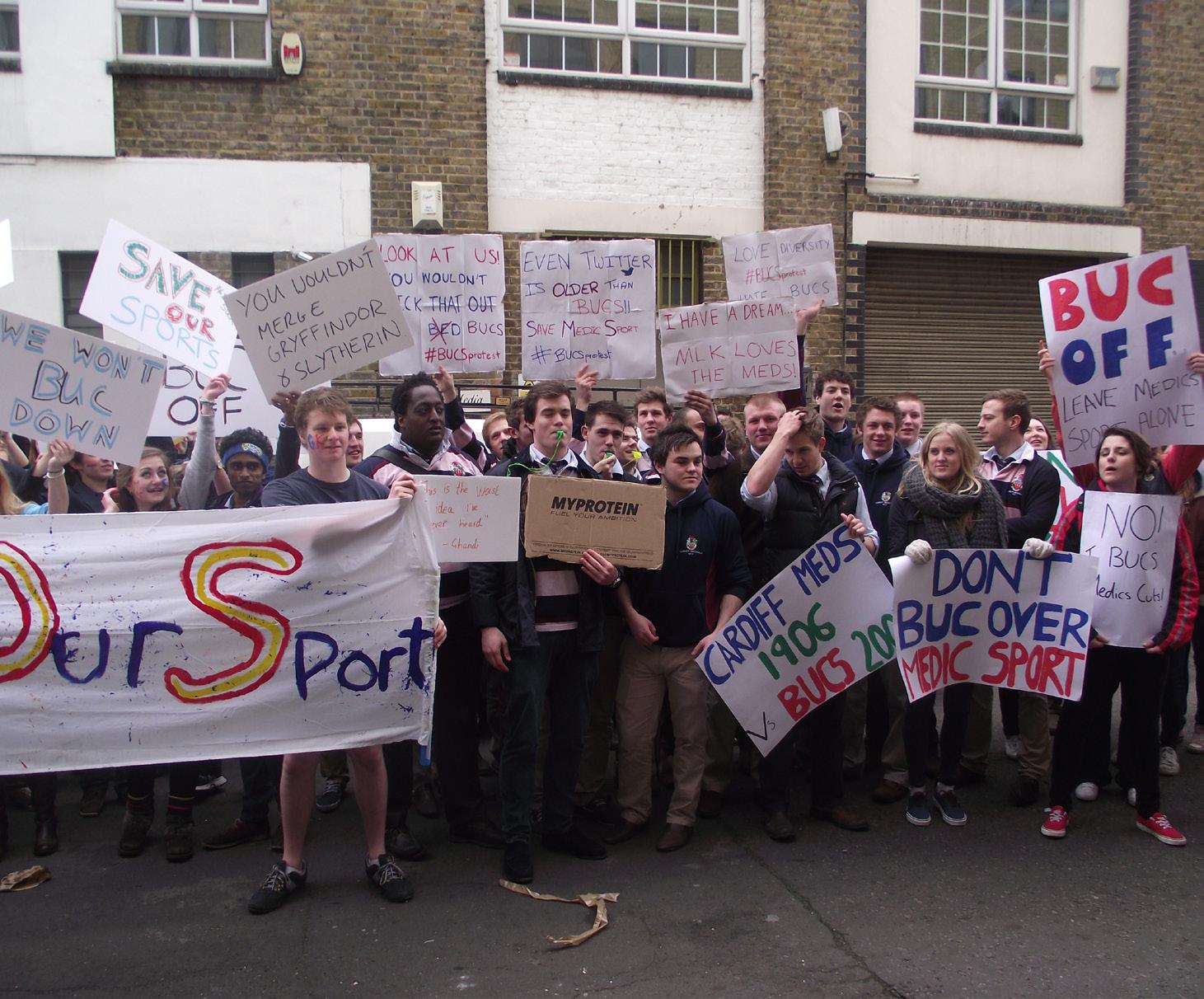
Hi! Massive congratulations to all of you freshers just arriving - I’m sure you’ll have an amazing time at Cardiff and welcome back to the returning students!
I’m Edore, your Vice President of Sports and Athletic Union President for this year. I will be helping to shape your sporting experience here at Cardiff. Whether it is competitive, recreational or leisure activity, I’m here to support all of you and the progression and development of the 63 clubs the Students’ Union offers.
The Athletic Union (AU) provides all students with a diverse variety of clubs to take part in, regardless of whether you want to compete at the elite level or recreationally. With over 60 sports clubs, I’m positive that there’ll be a club for you. If you want try something new and different, then we have many sports which are growing in popularity such as korfball, caving and American football.
We also run various one-off events that are very popular amongst students, such as the autumn dodgeball event, AU’s Got Talent show, the charity Naked Calendar and the prestigious AU Ball. There is also the Welsh Varsity, the biggest sporting event of the year, where we take on Swansea University in over 30 sports with the aim of winning the prestigious Varsity Shield. Seeing as we trounced Swansea last year, this is definitely an event not to be missed!
As your elected Vice President of Sport and Athletic Union President, I am here to help everyone with all of their sporting aims and make sure you get involved in as much of Cardiff University Sport as you can. You can find me in the Officer’s Bowl on the third floor of the Students’ Union building - feel free to come in and see me, I’m always happy to answer your questions!
The annual AU Fayre, in which all of our clubs will be on display and available for you to sign up to, will take place on Wednesday 25th September in the Great Hall, which can be found on the first floor of the Students’ Union. I wholeheartedly encourage you to join a sports club, whether at the Fayre or at any point during the year.
GET INVOLVED - #TEAMCARDIFF!

